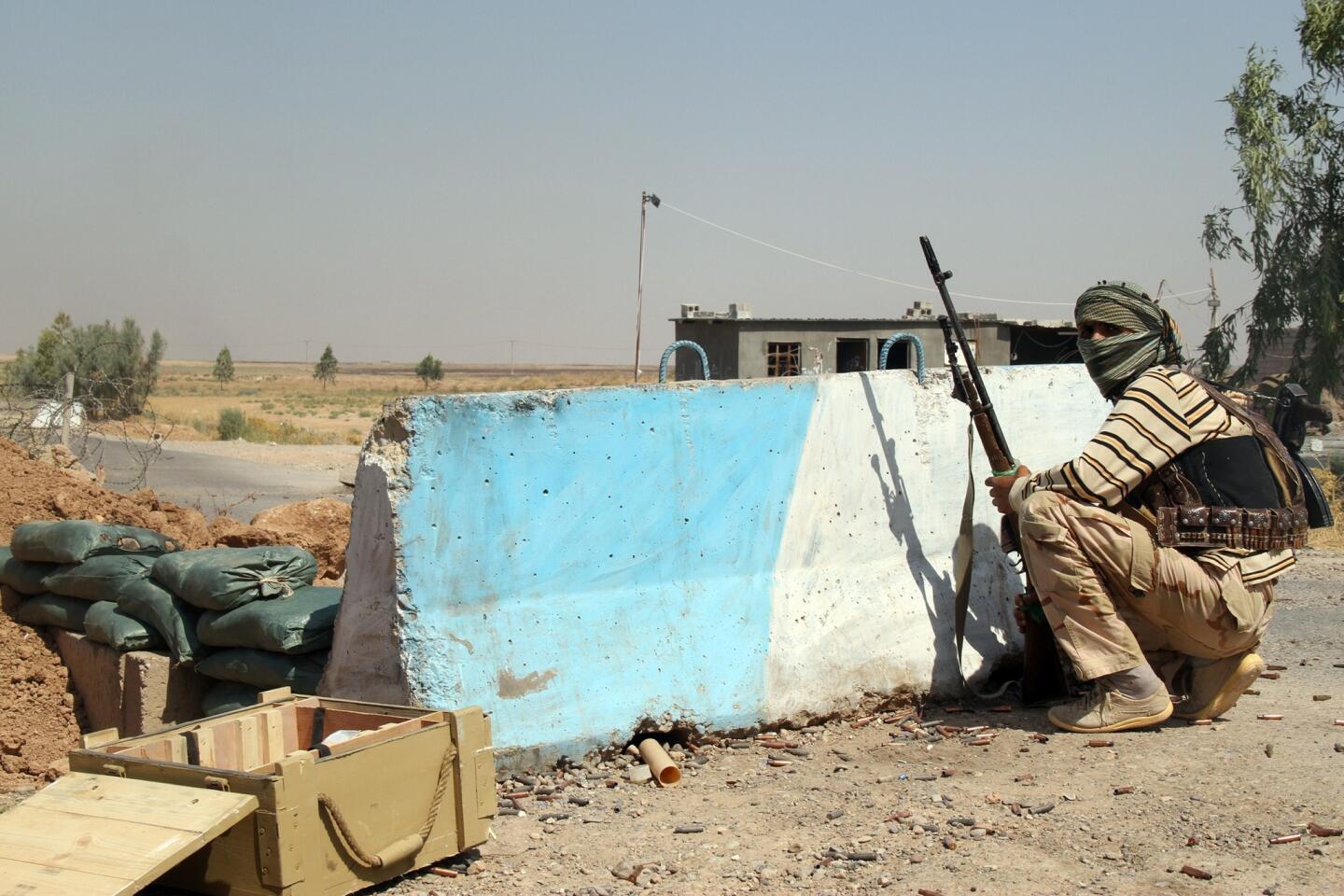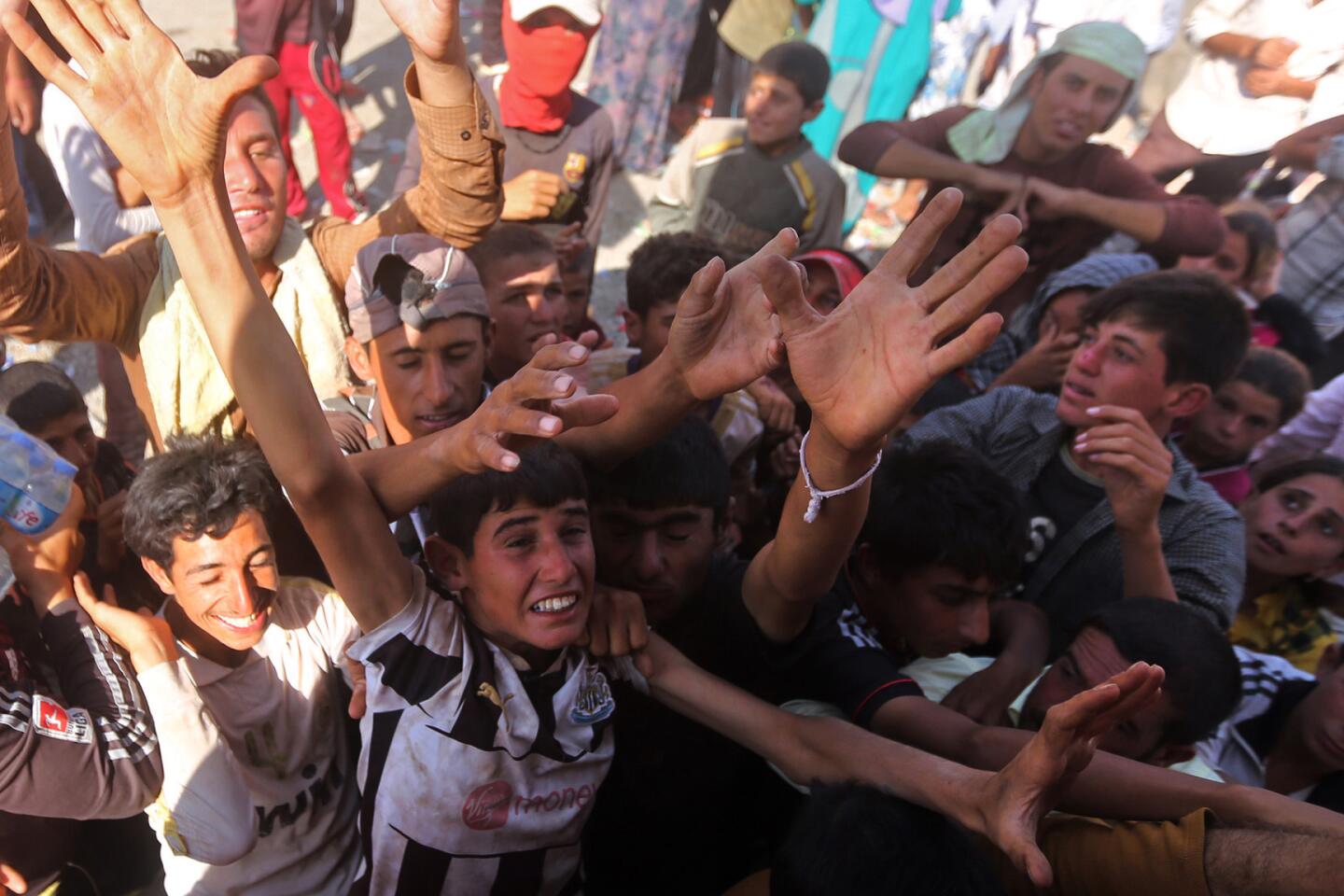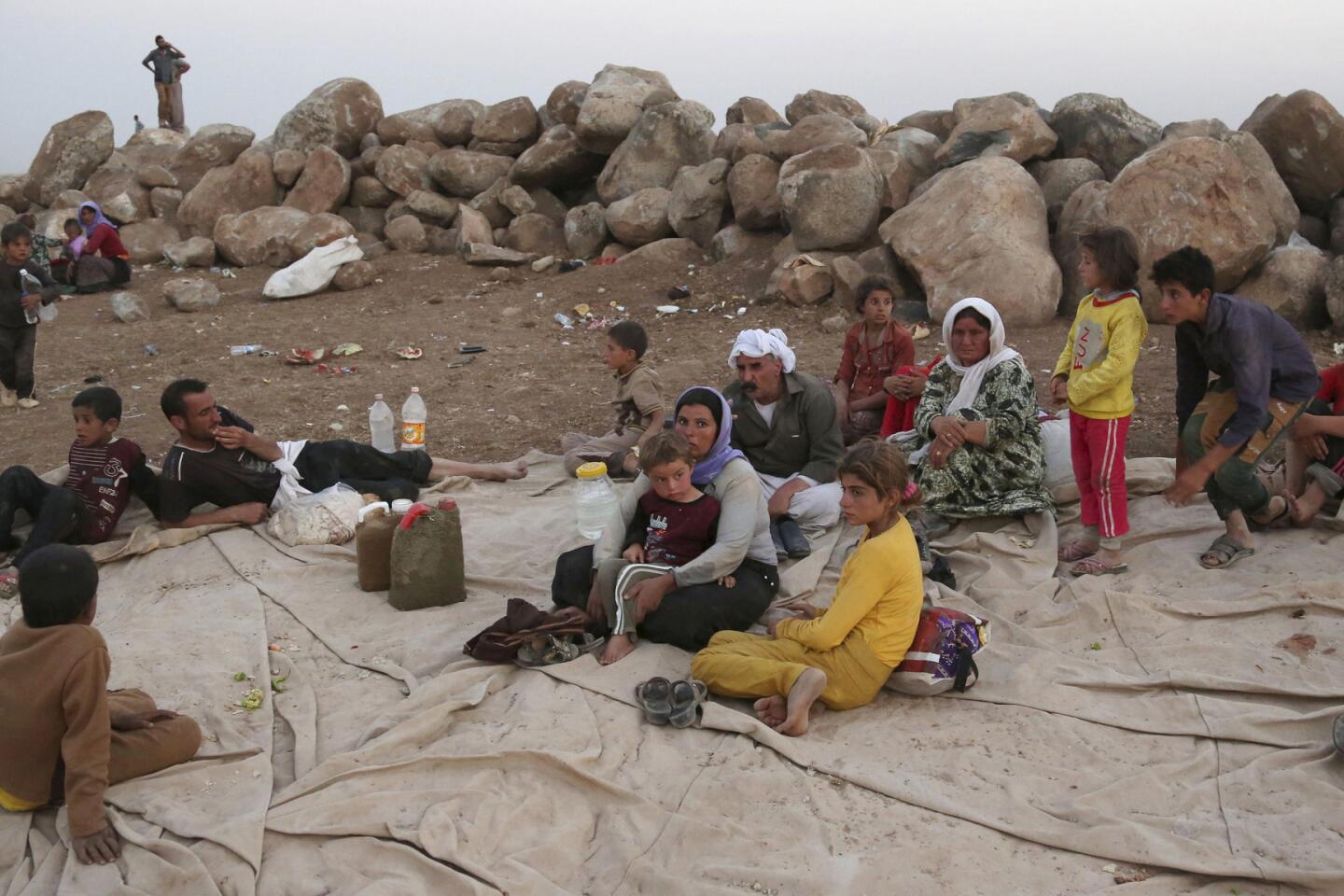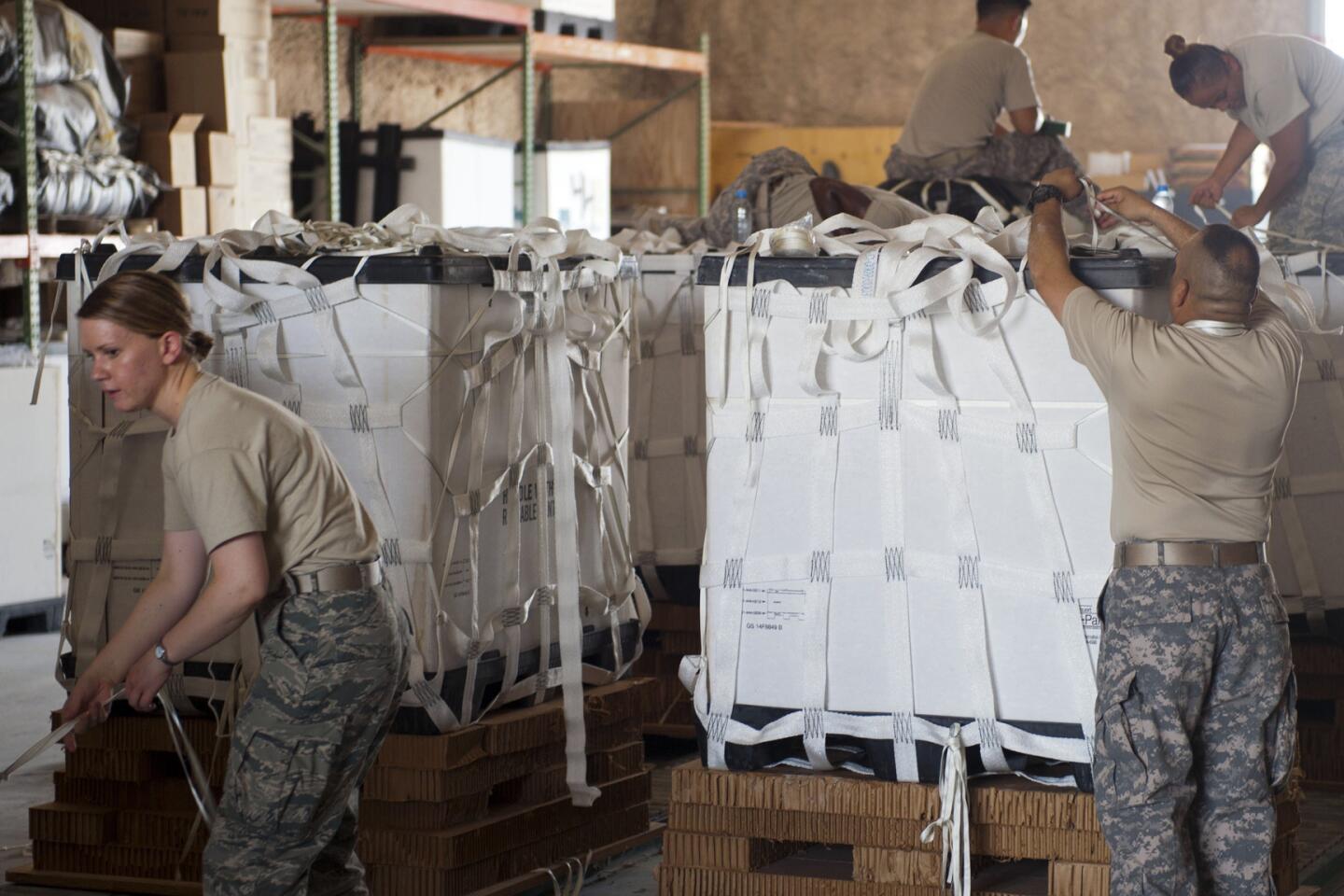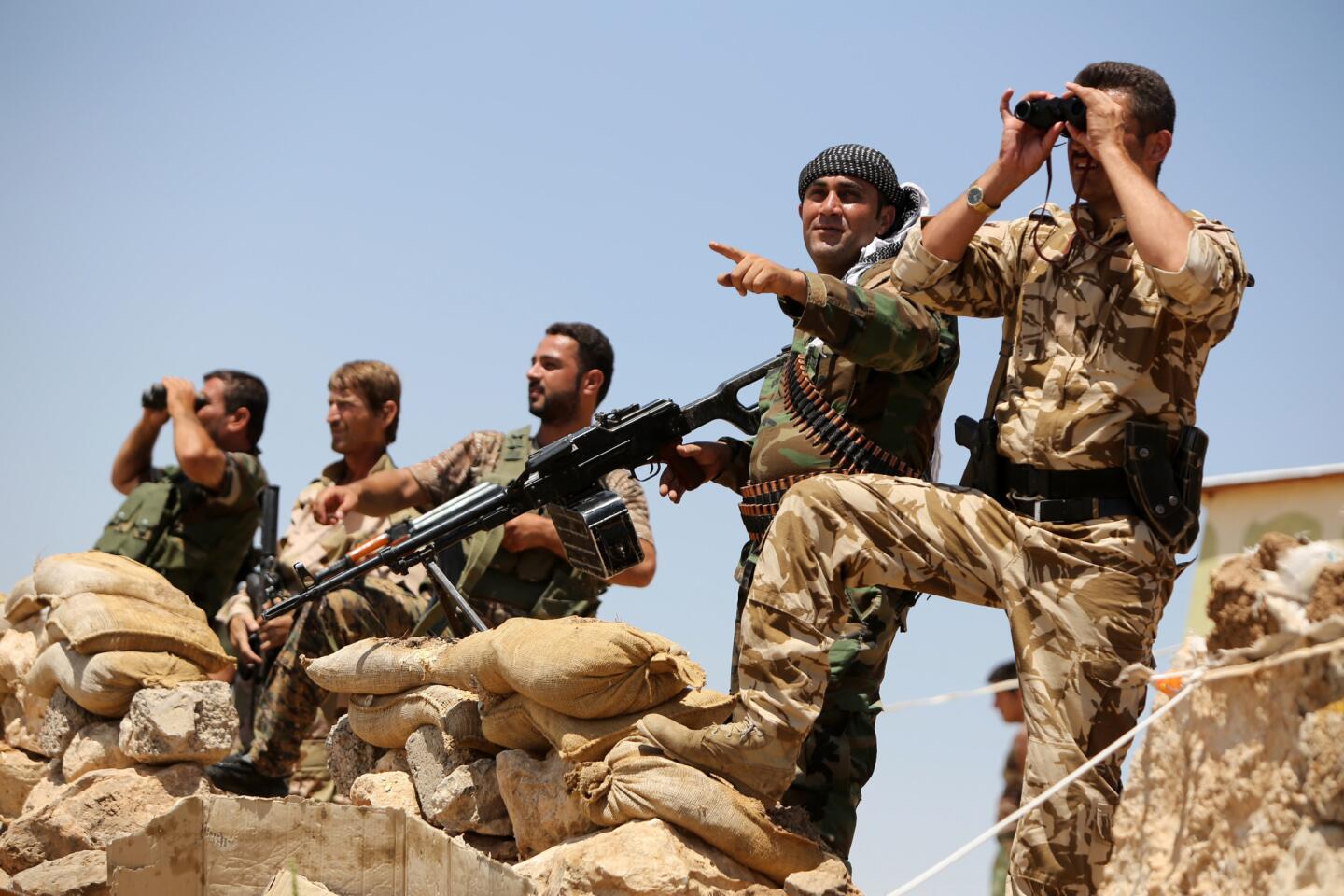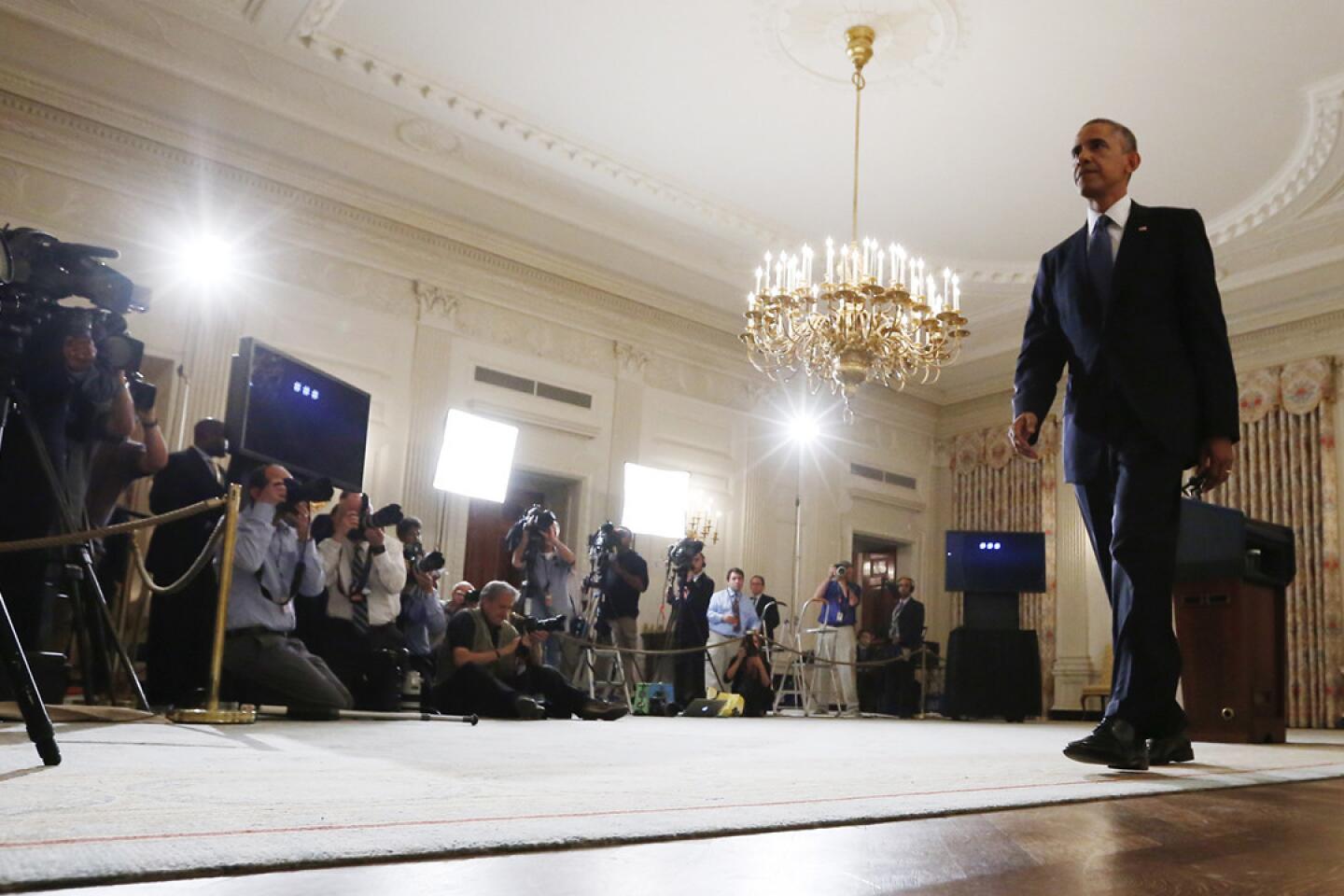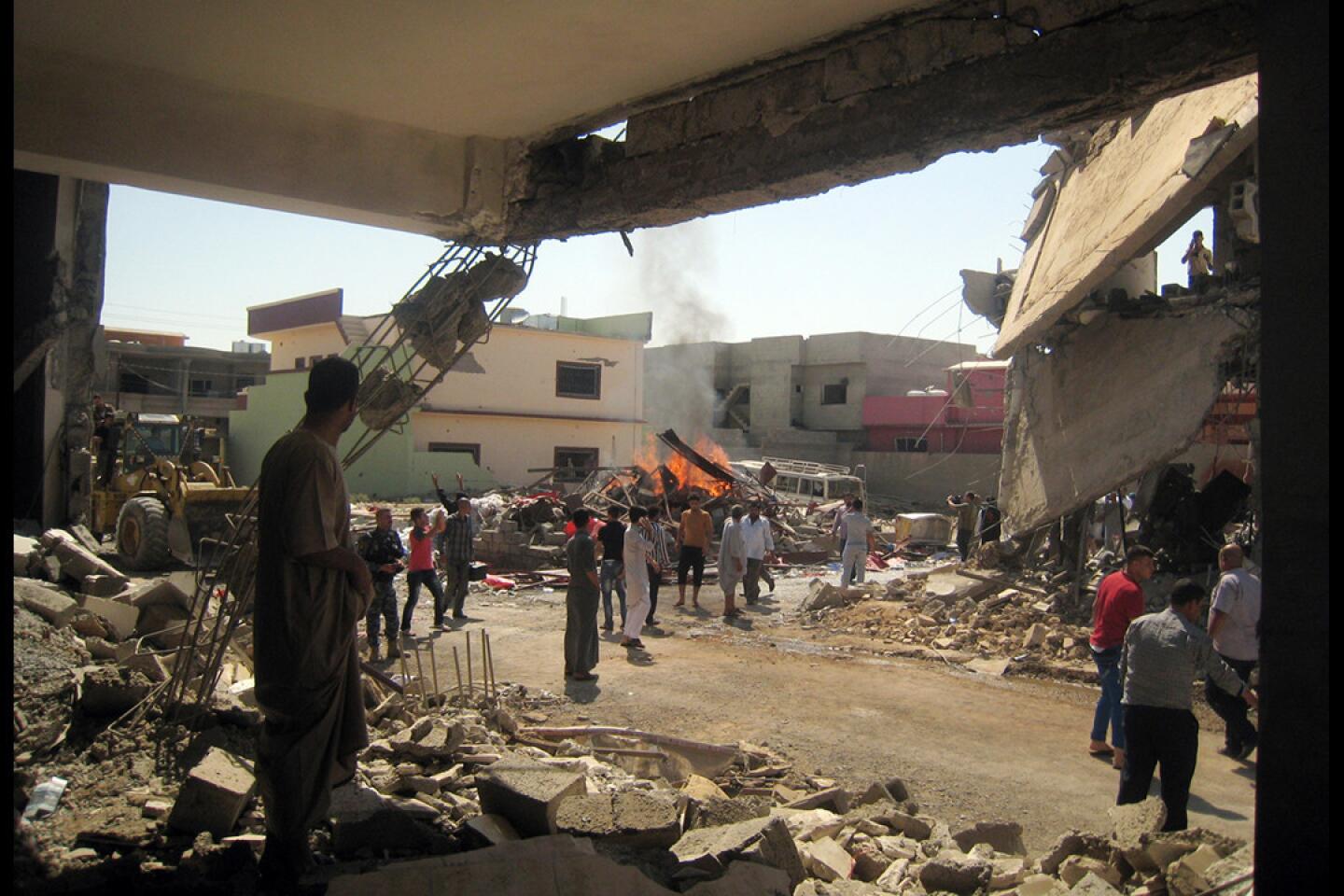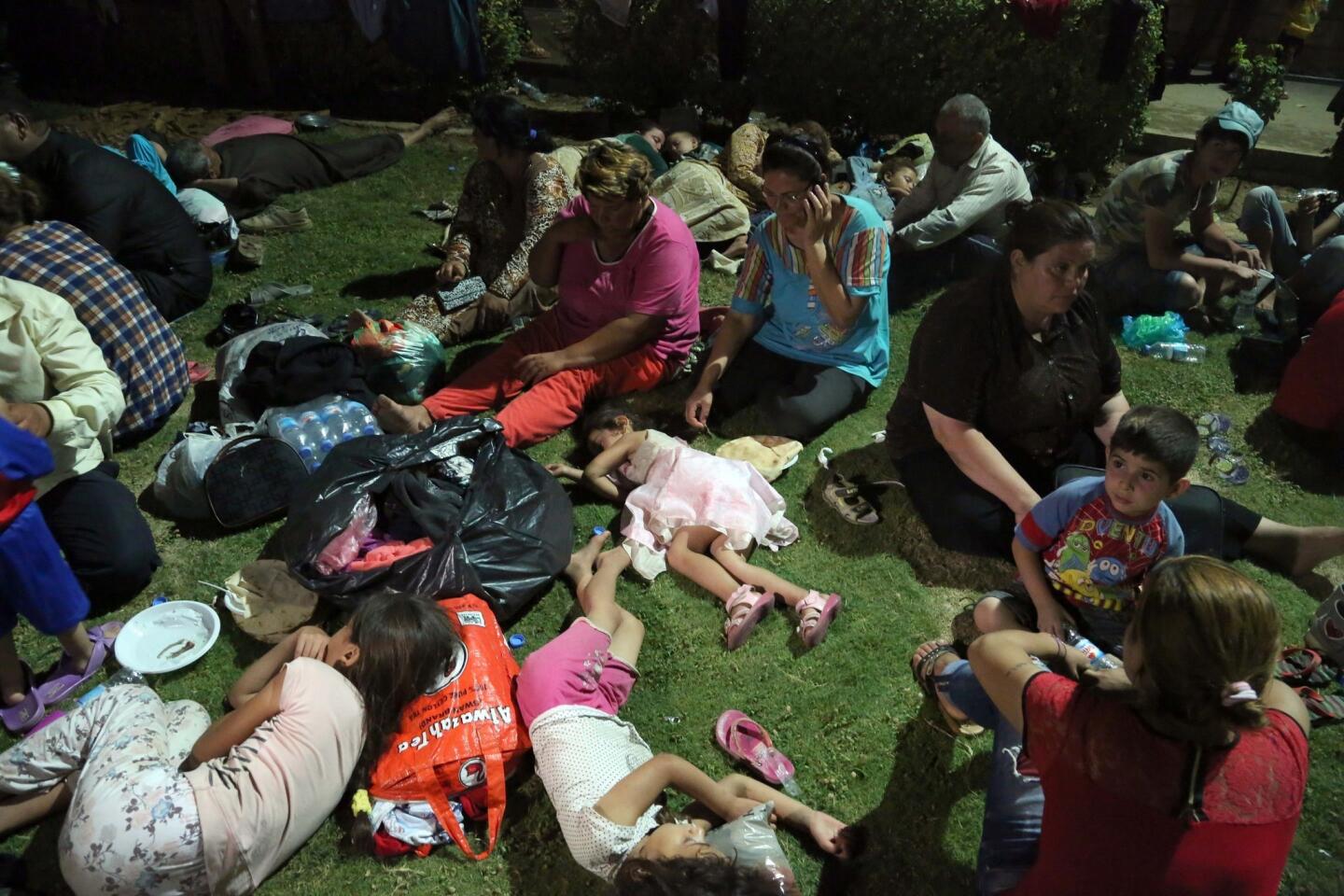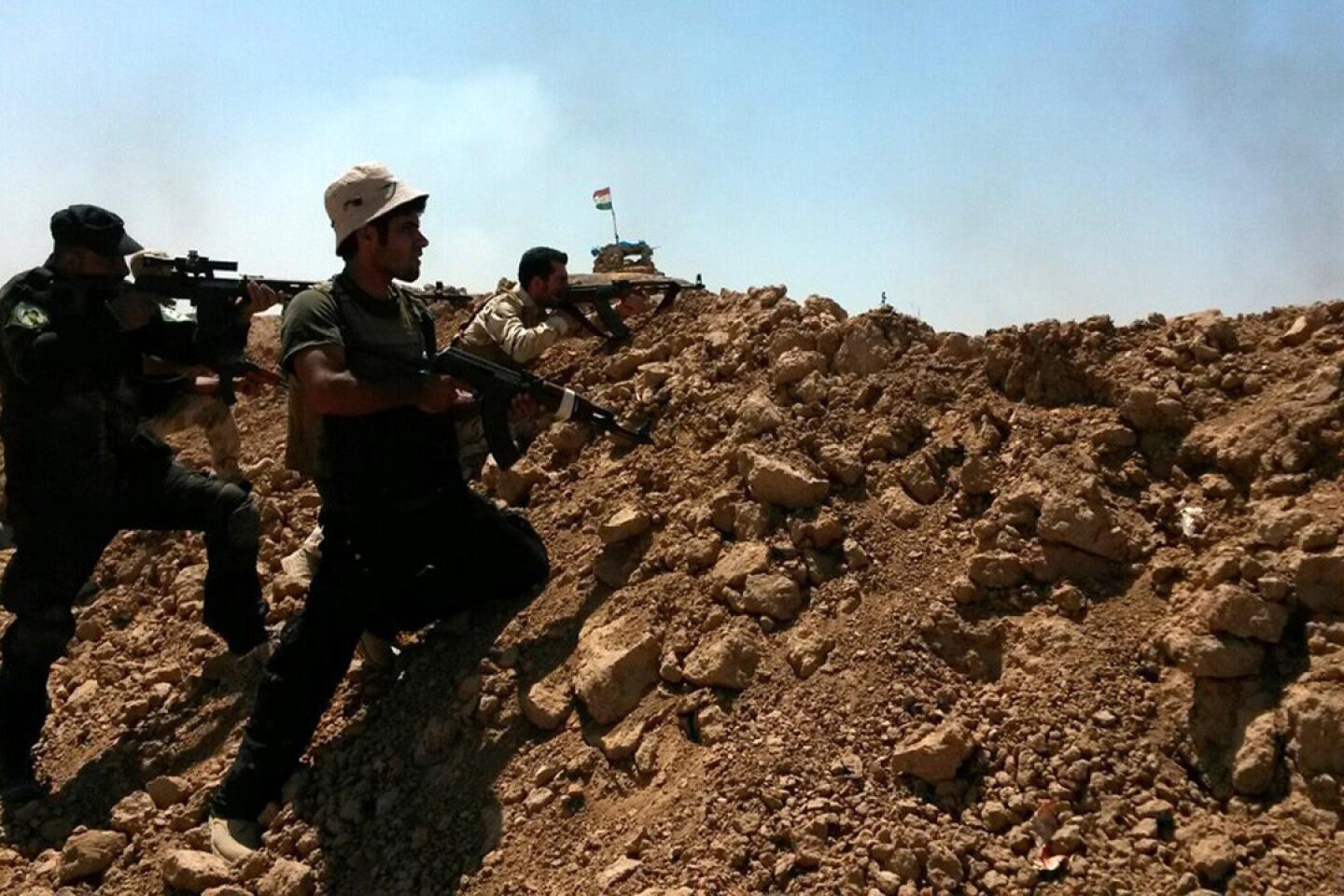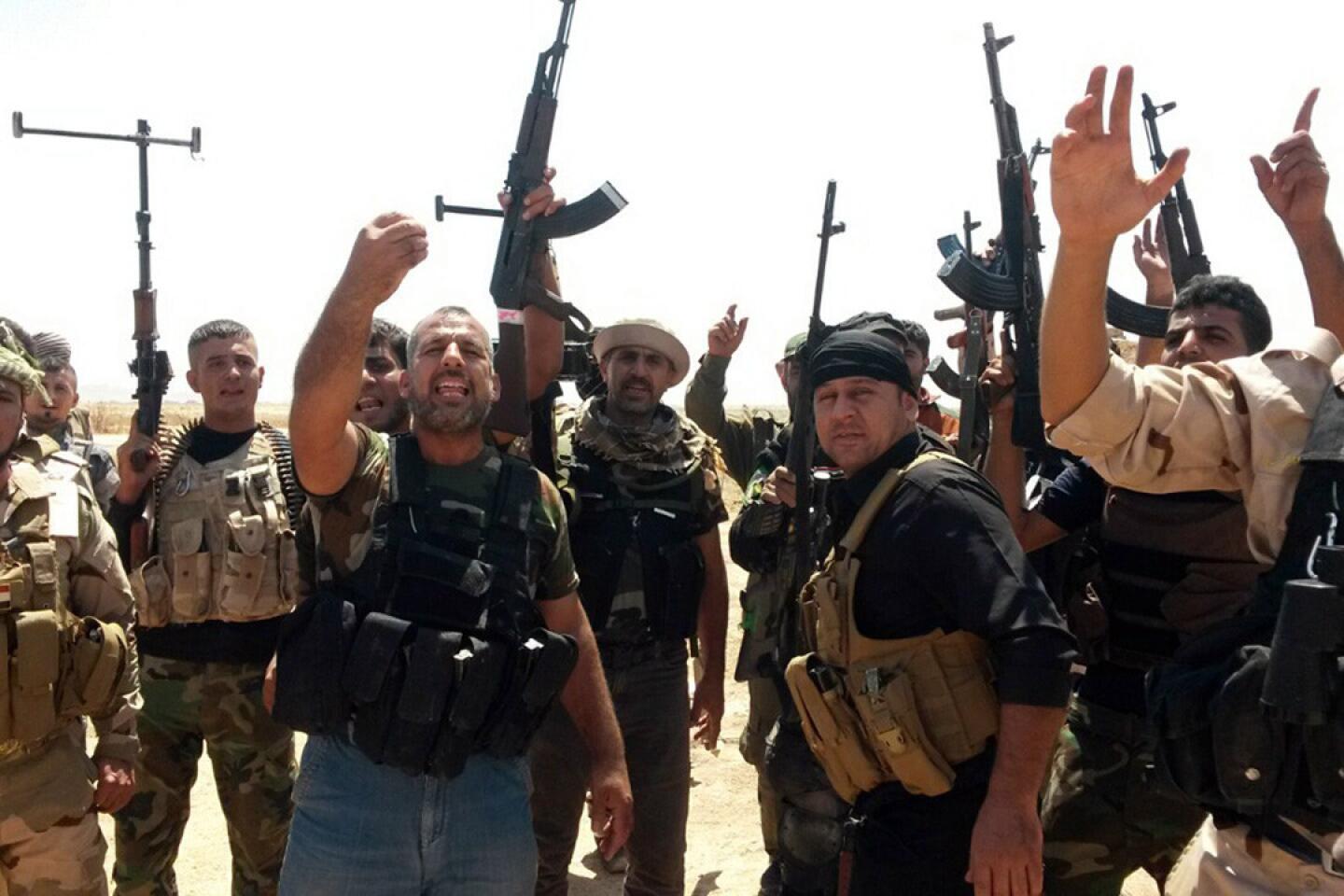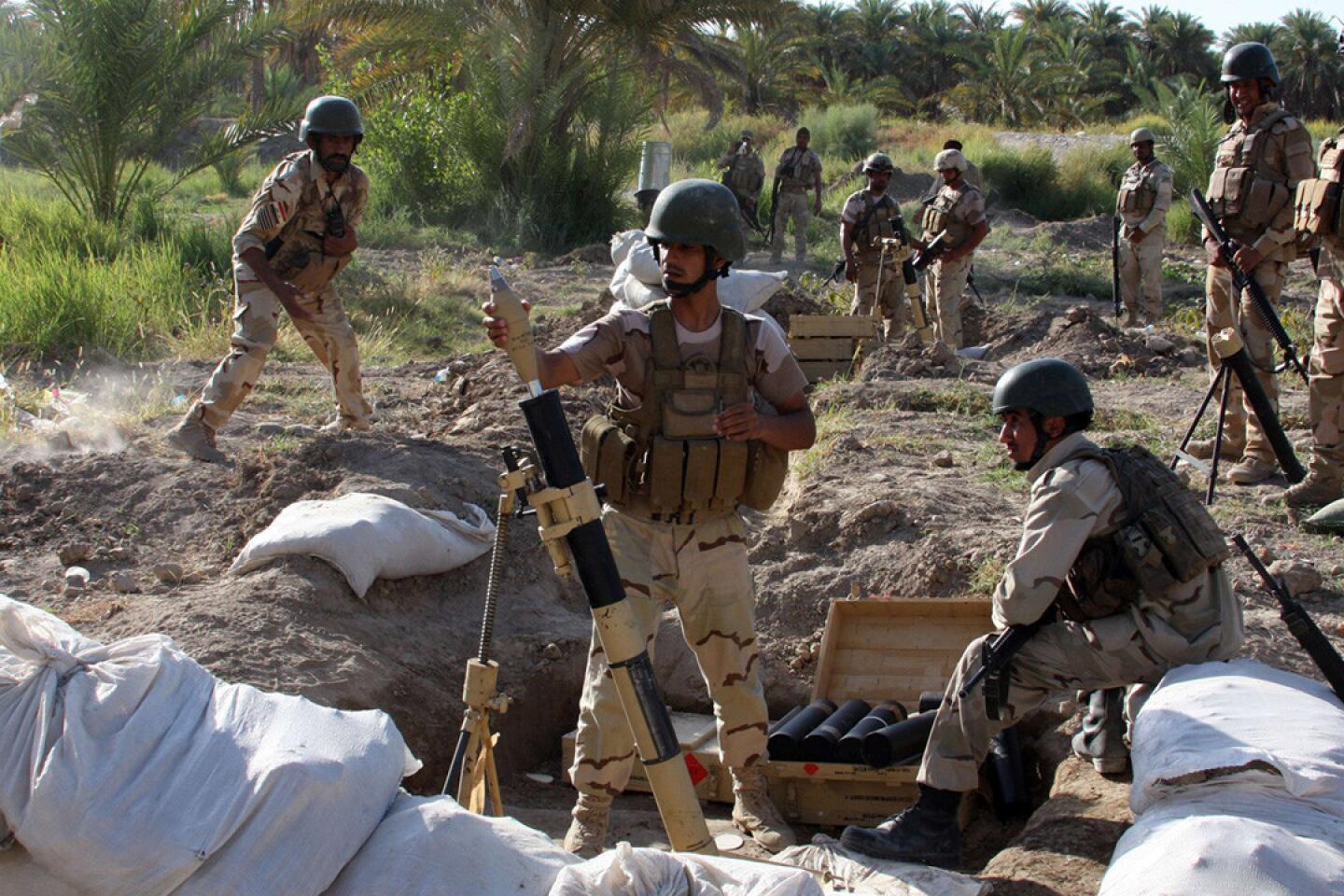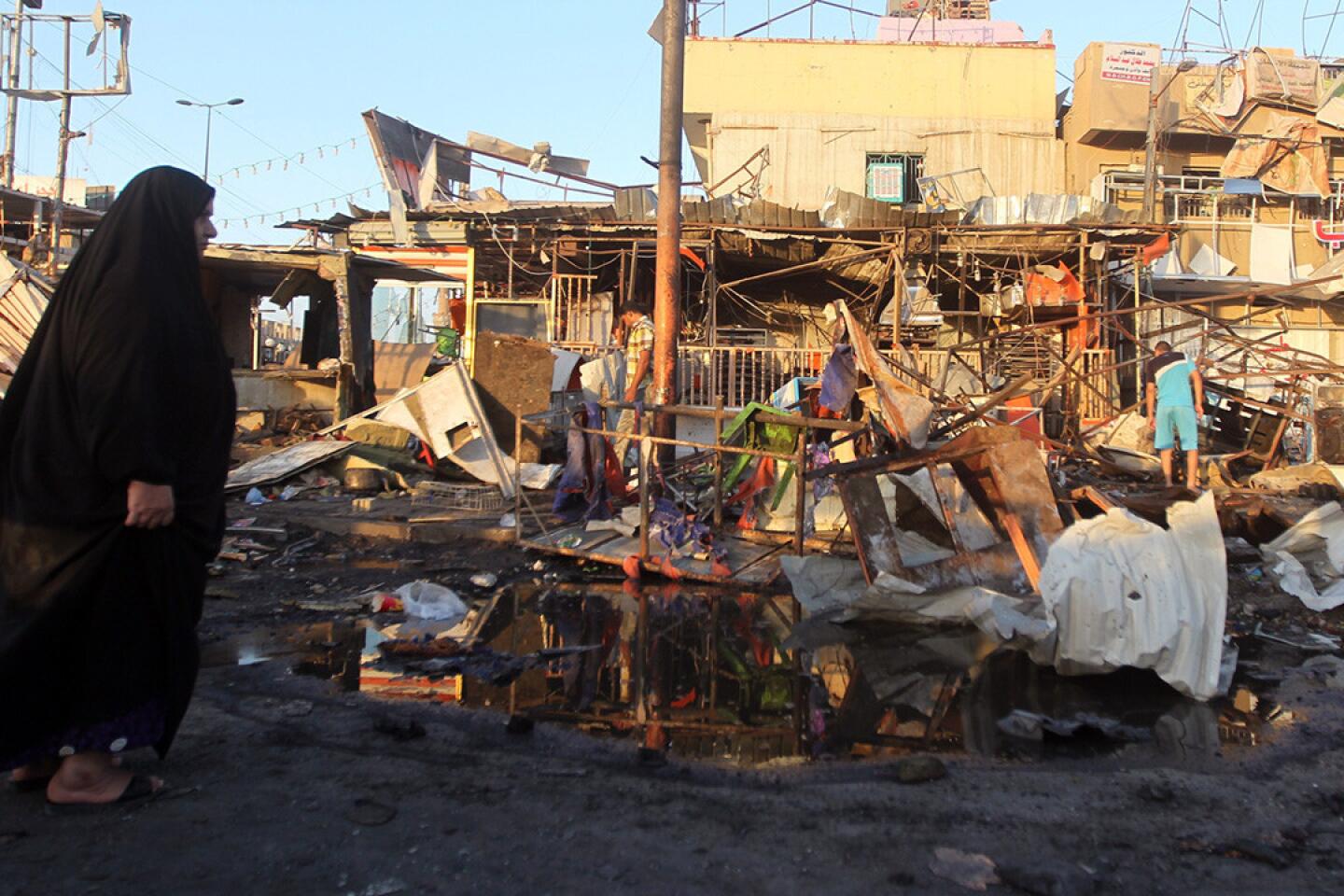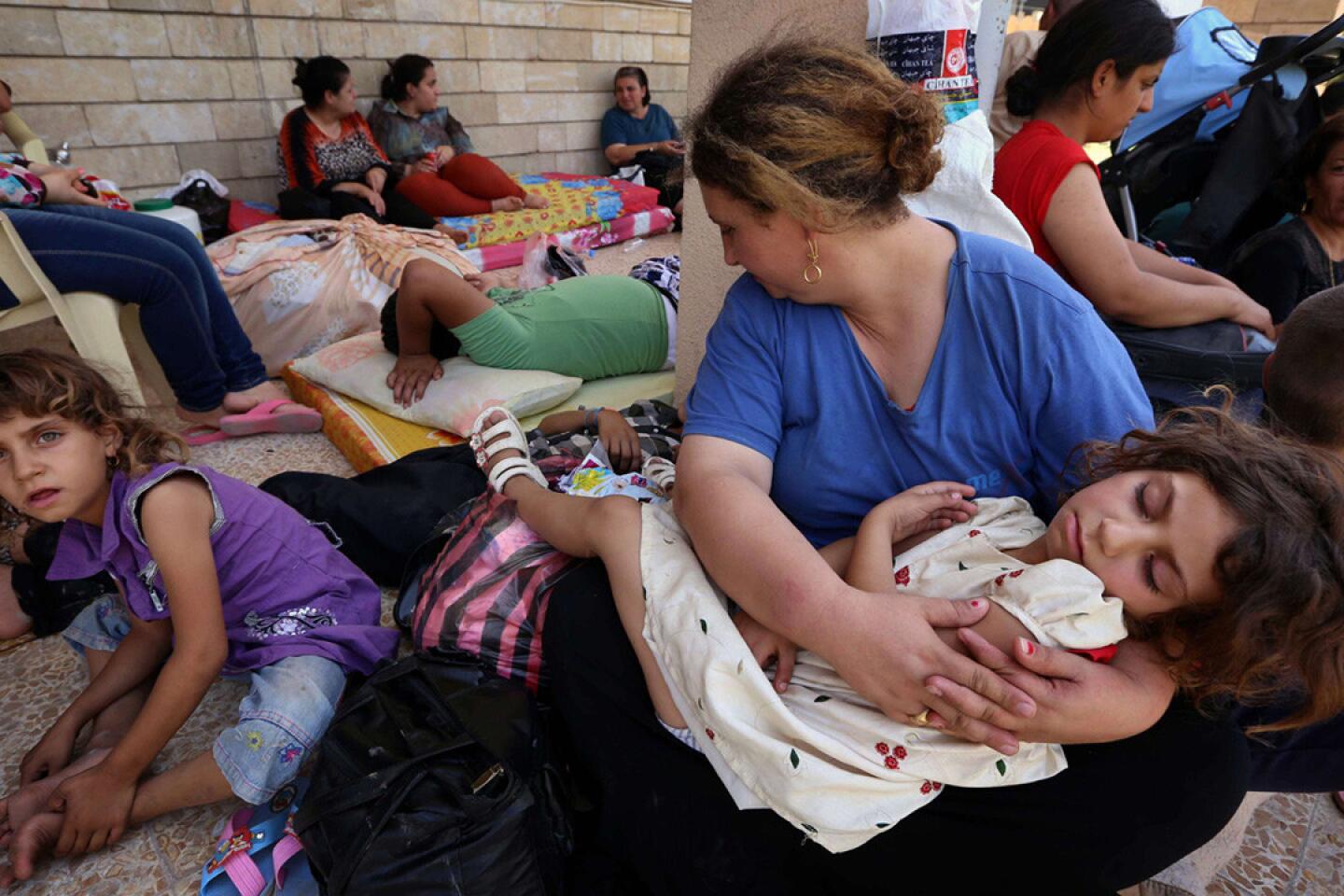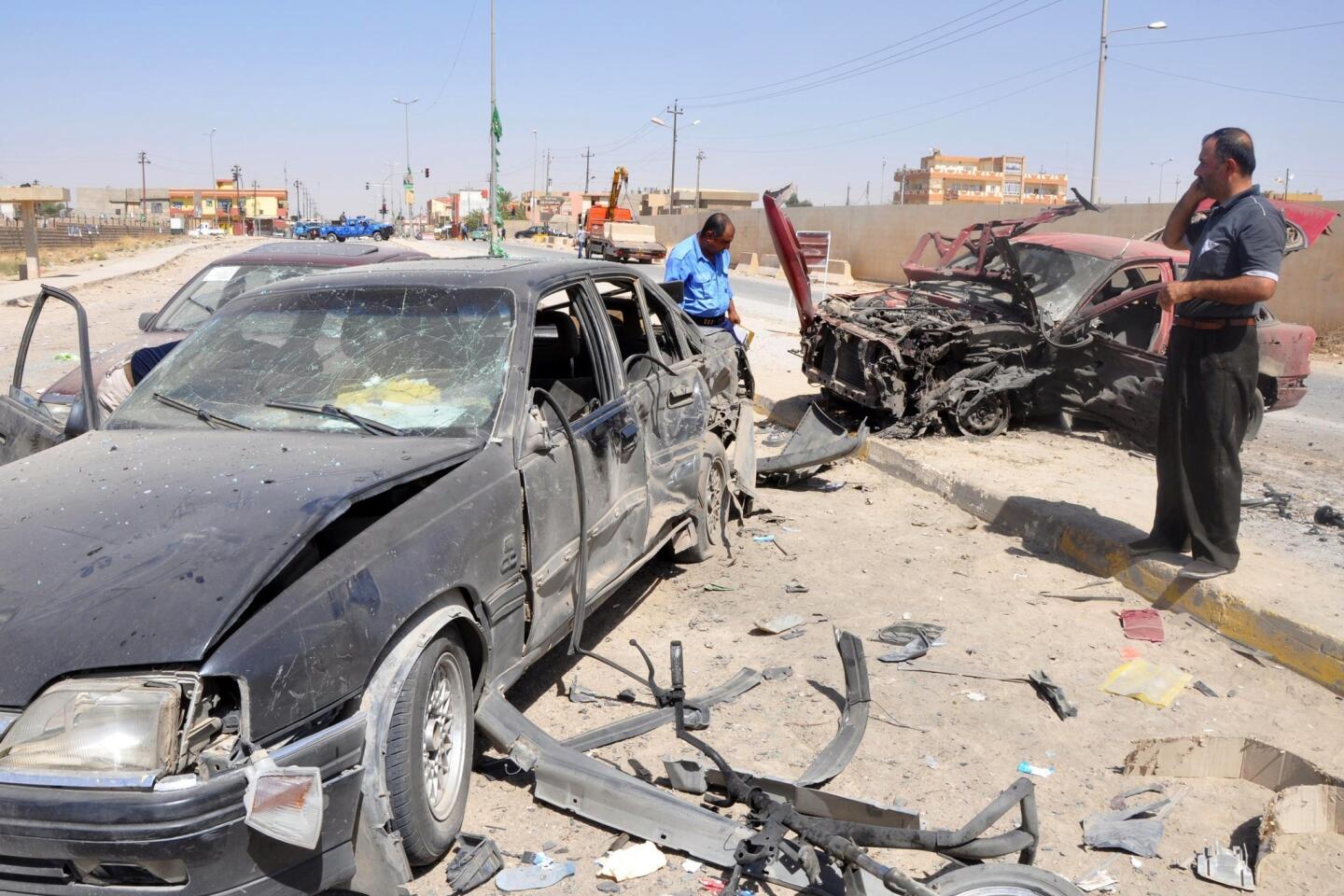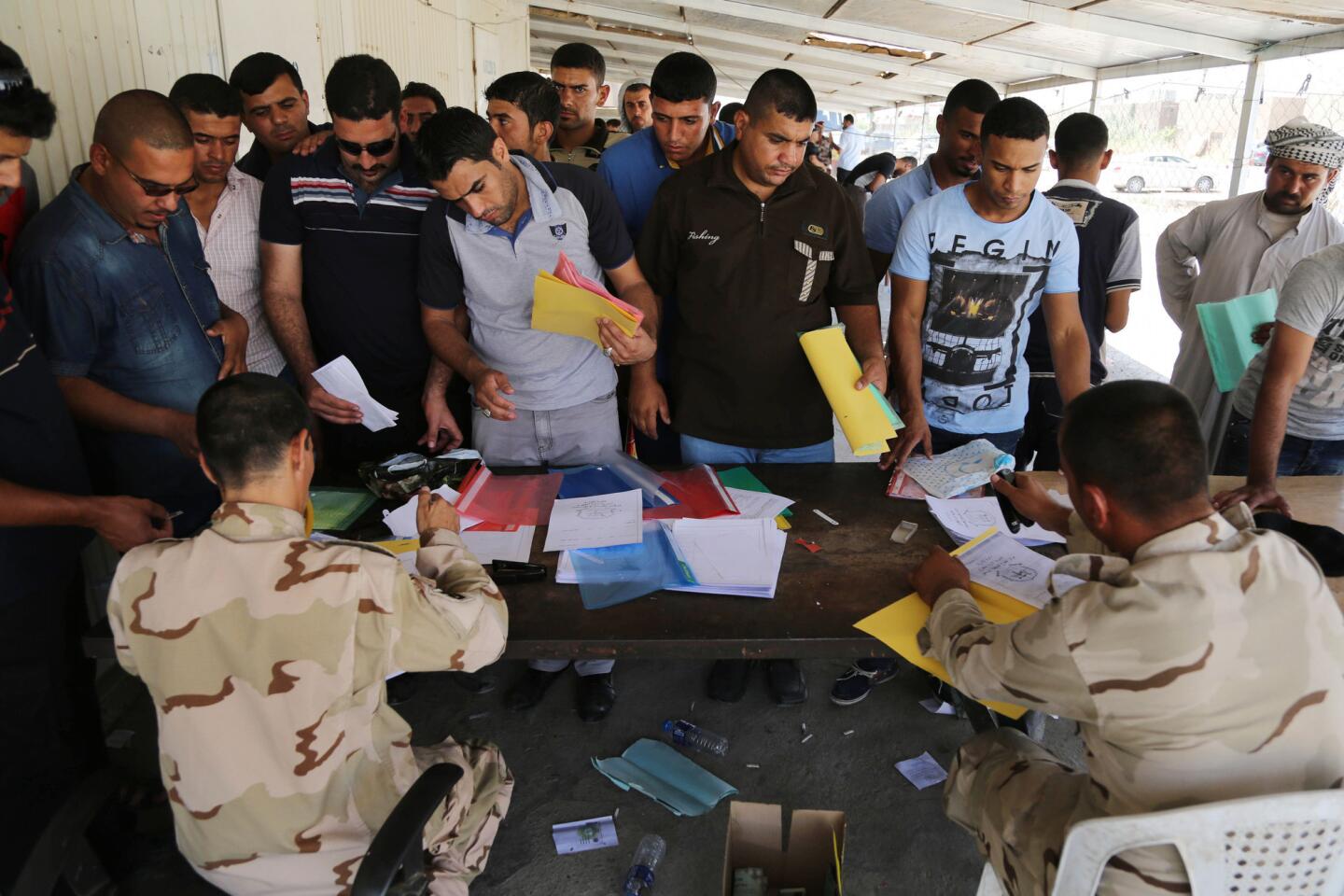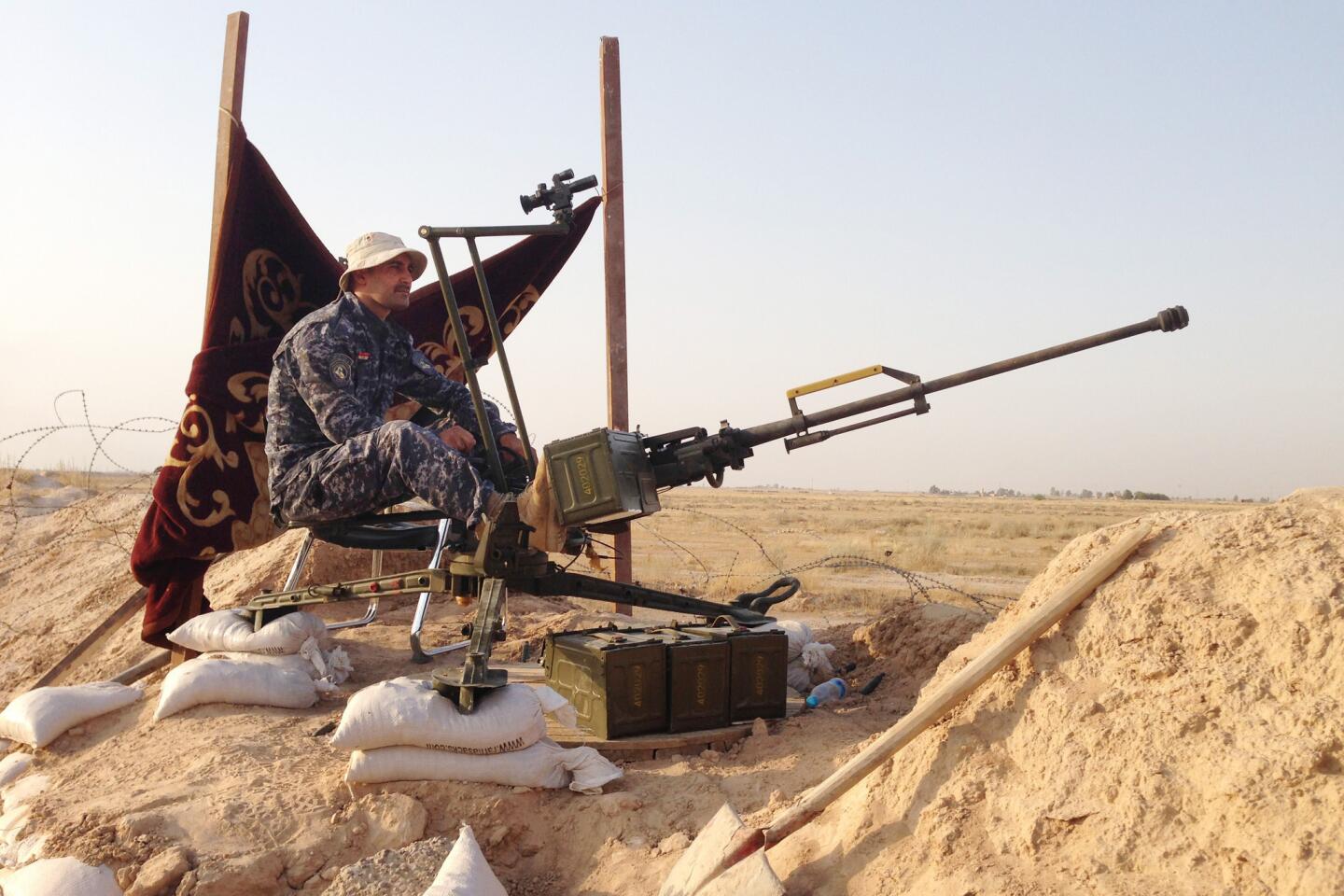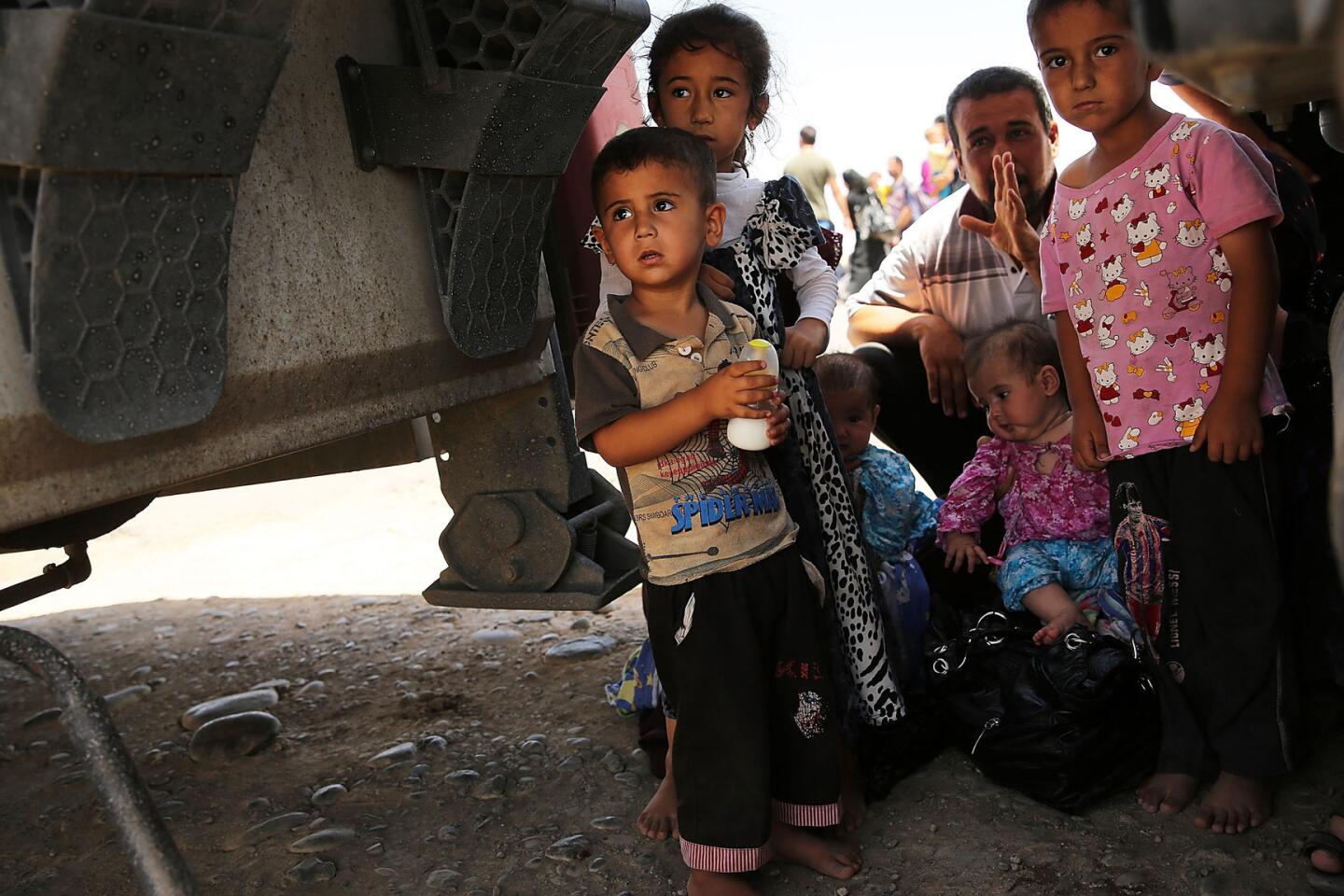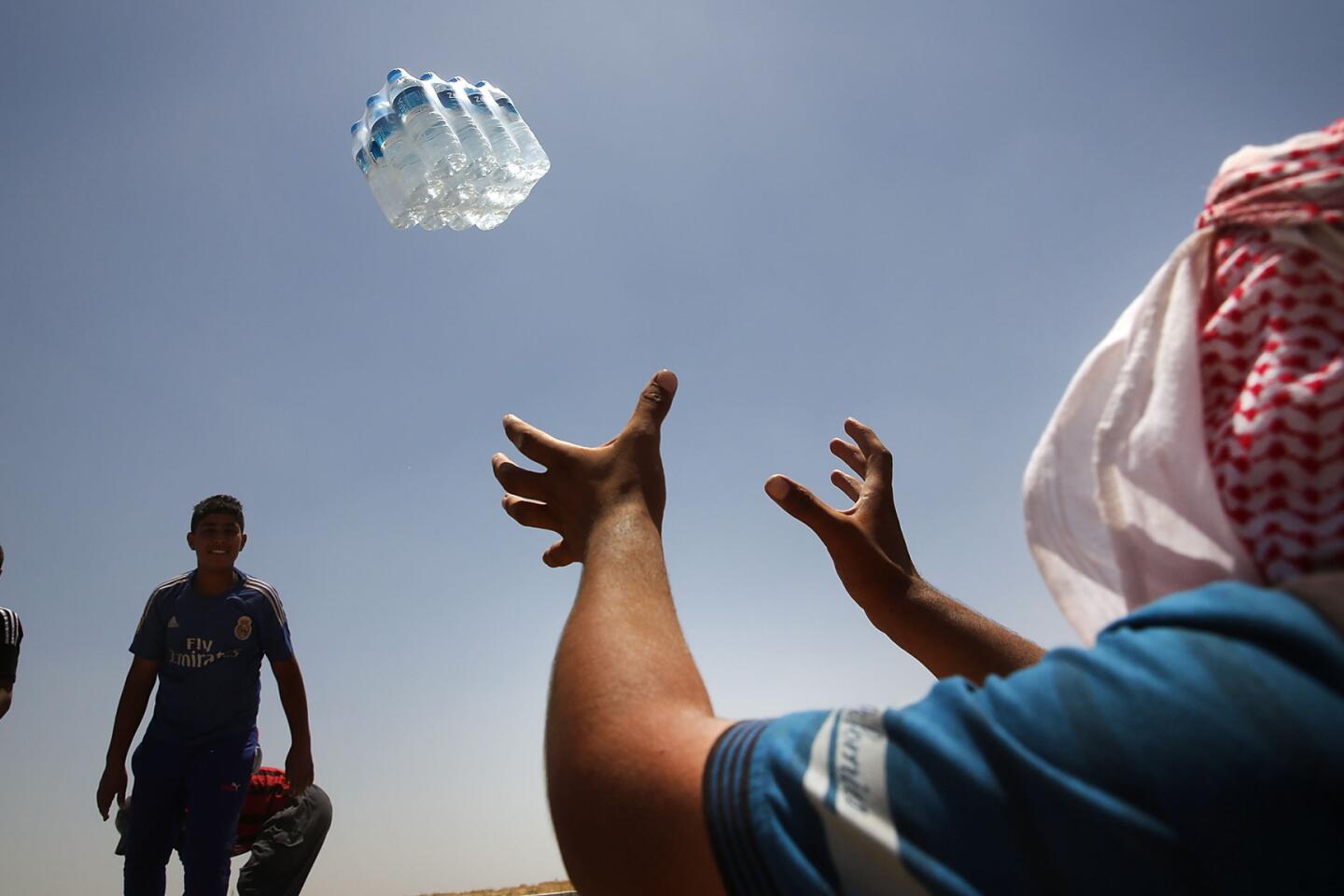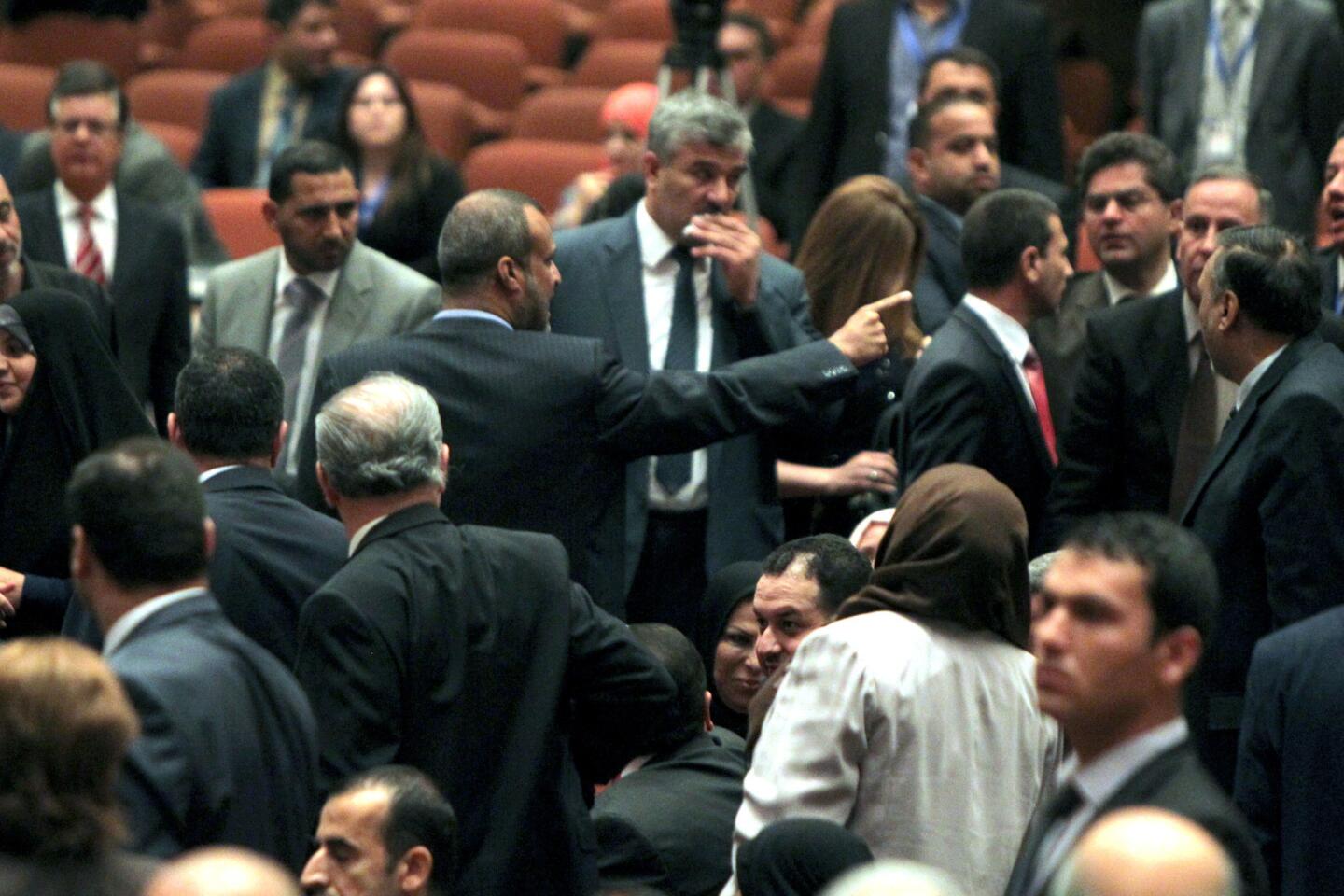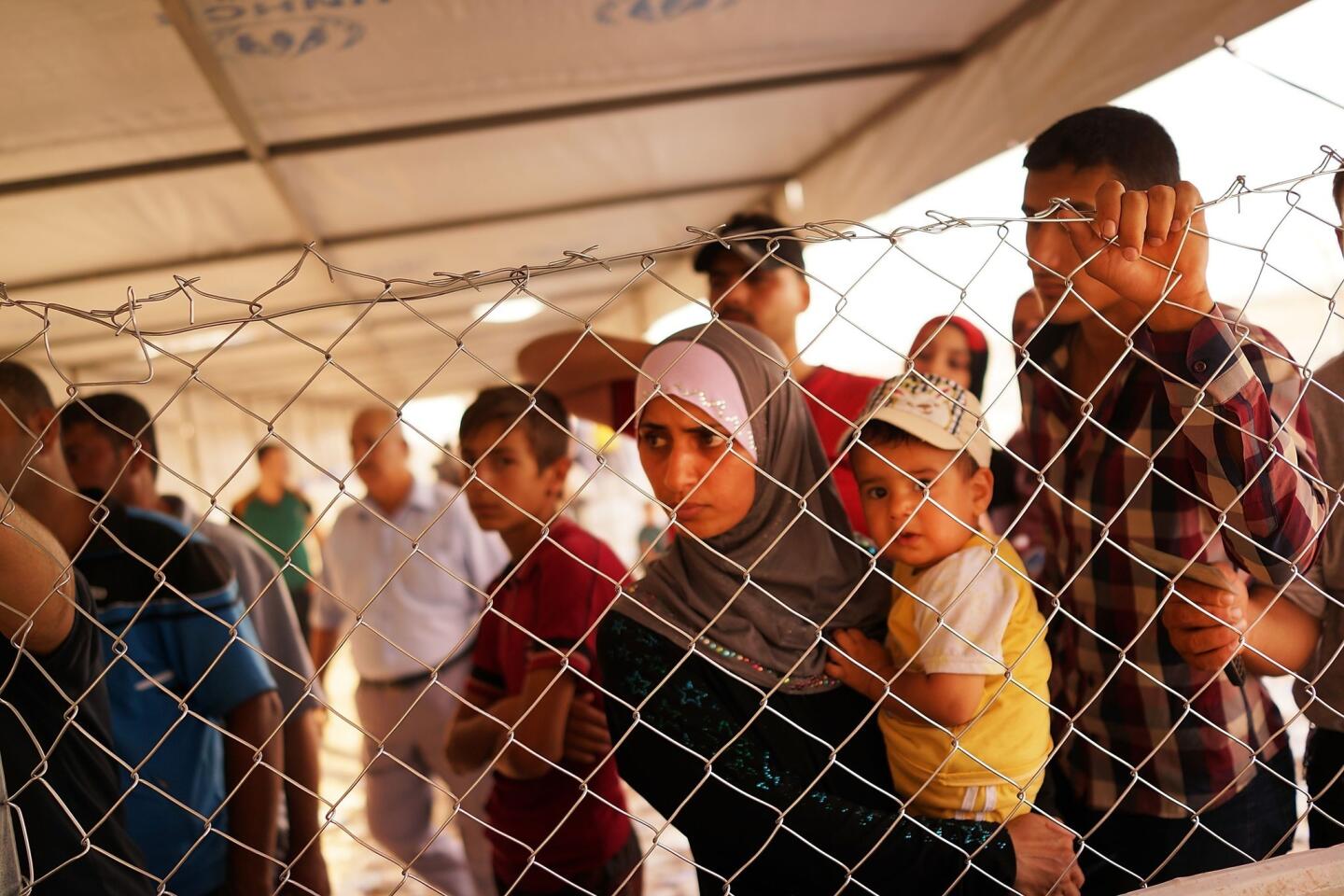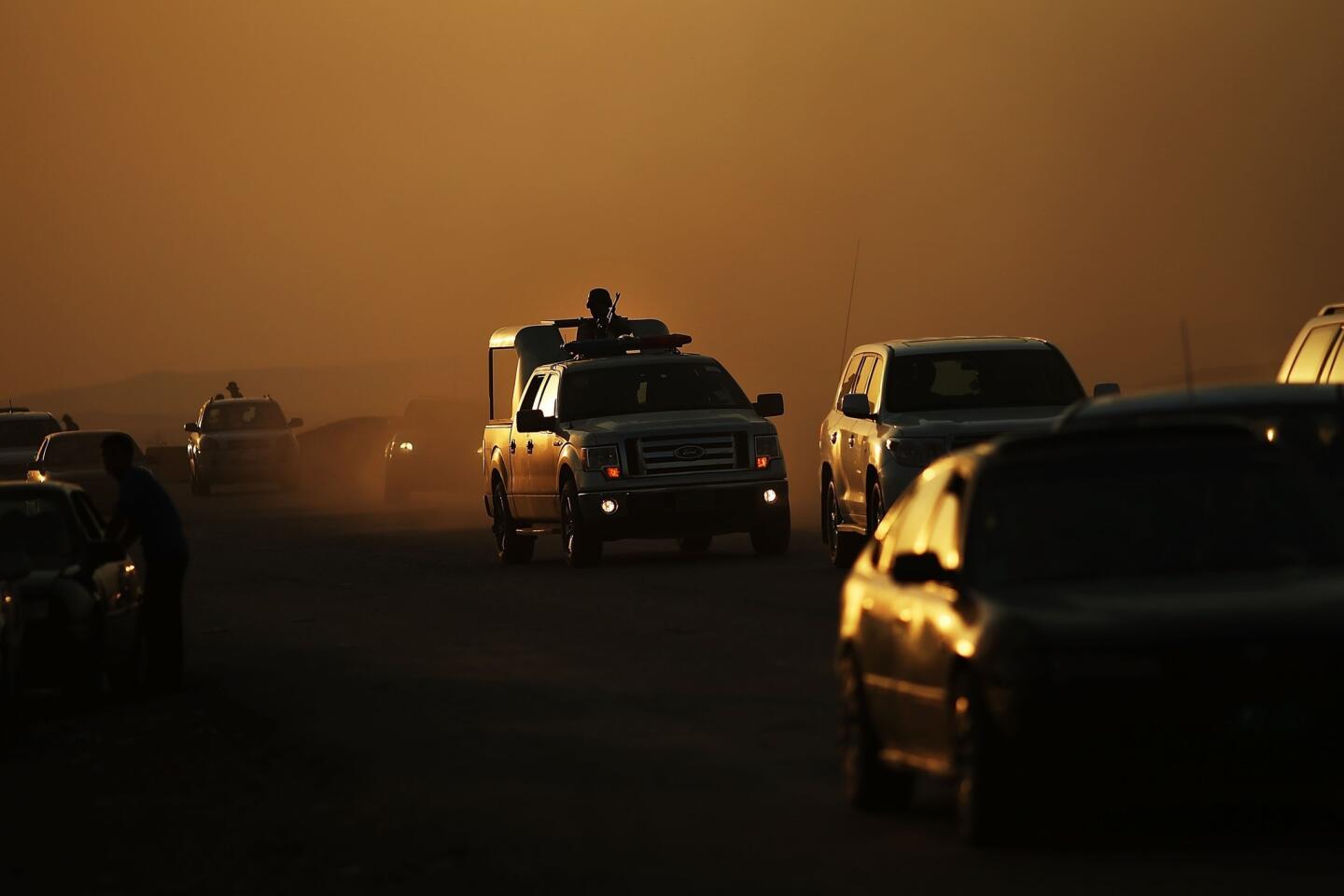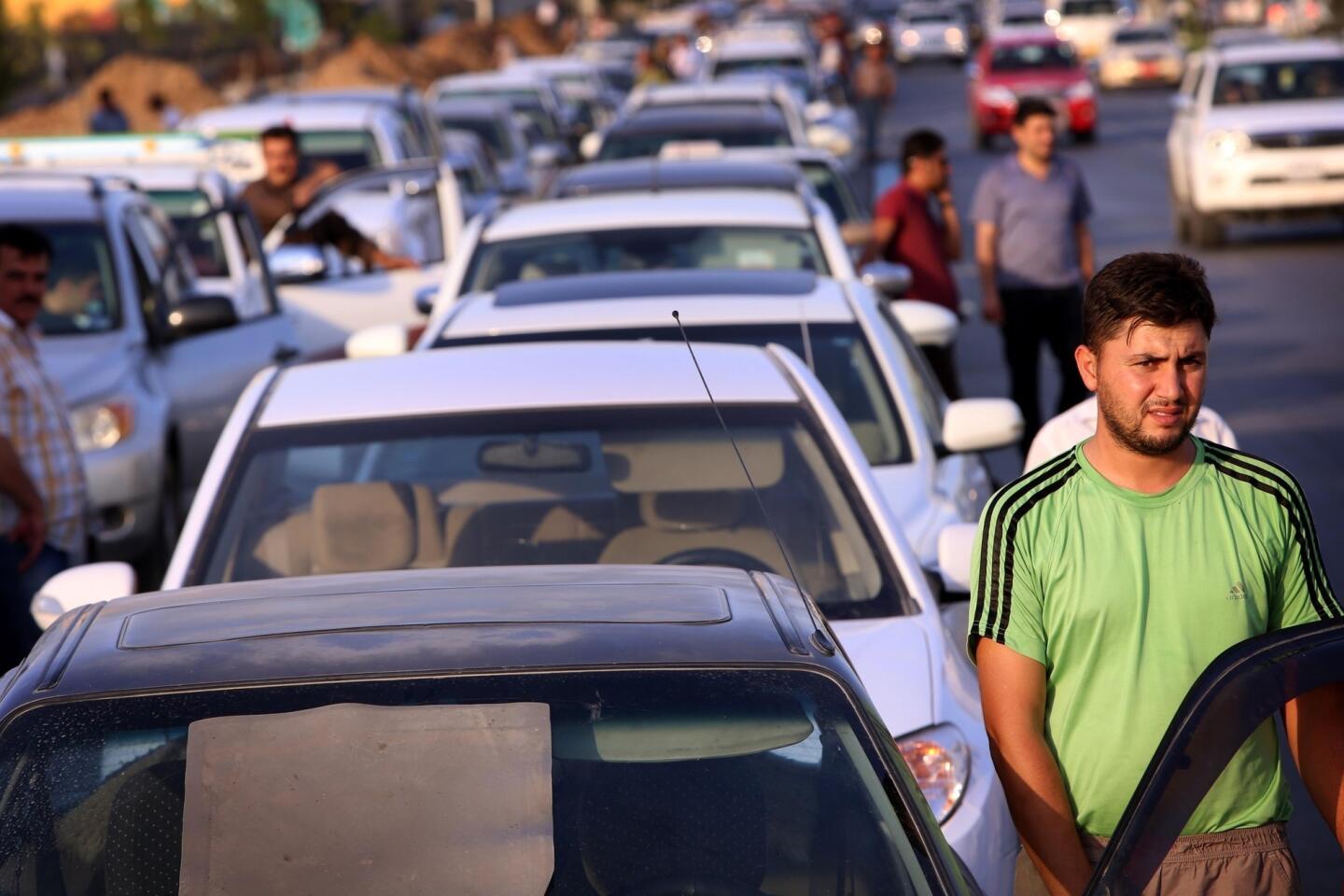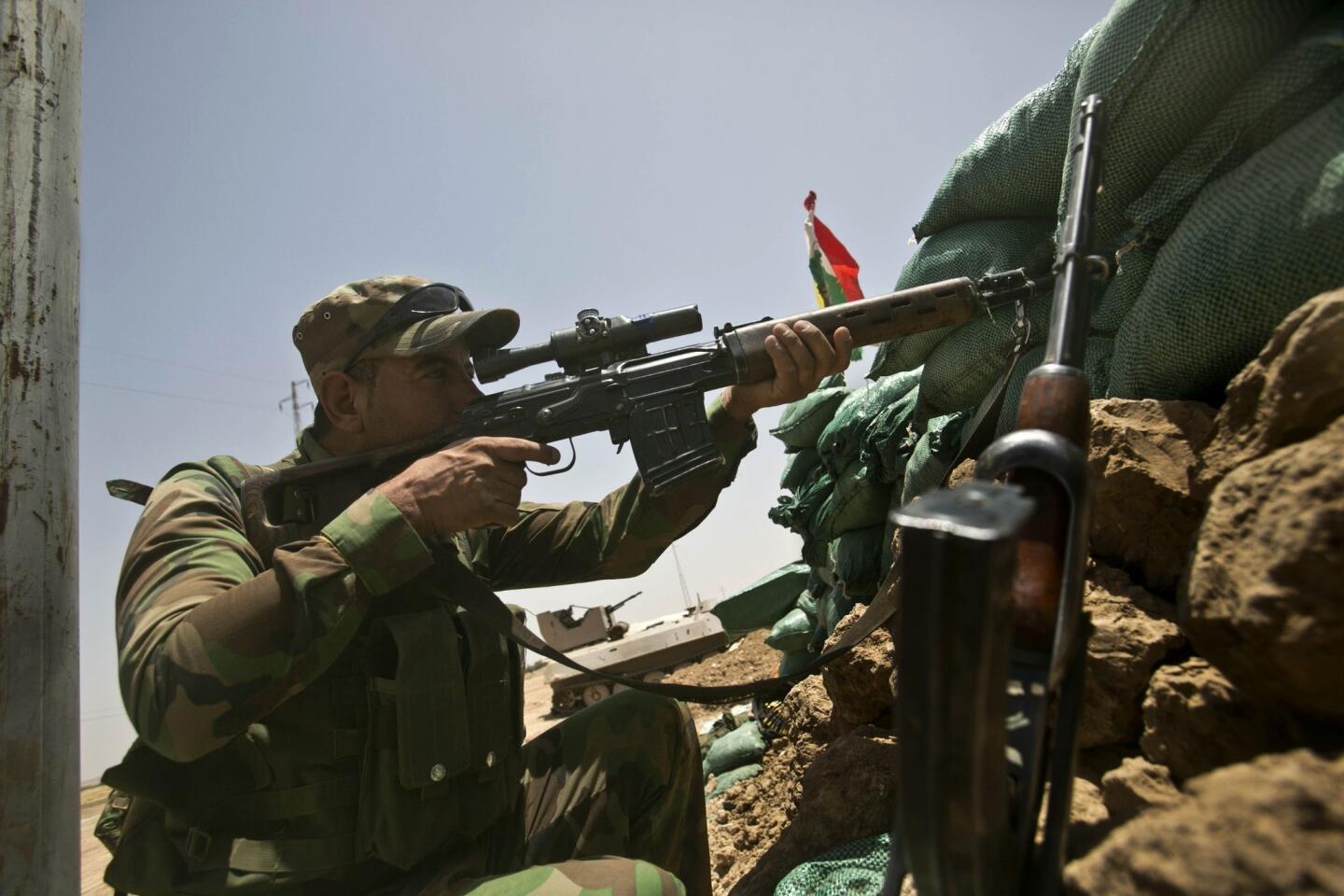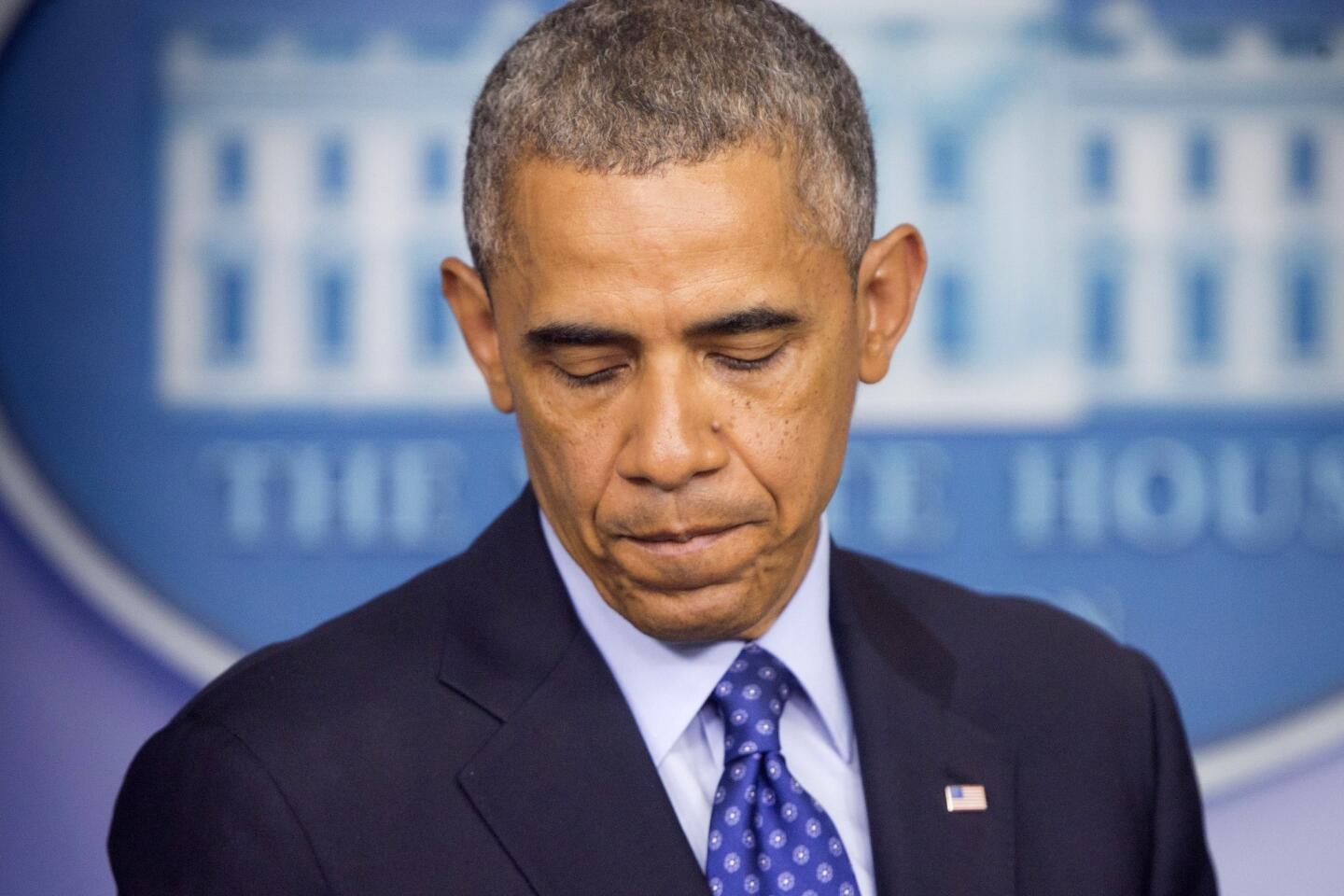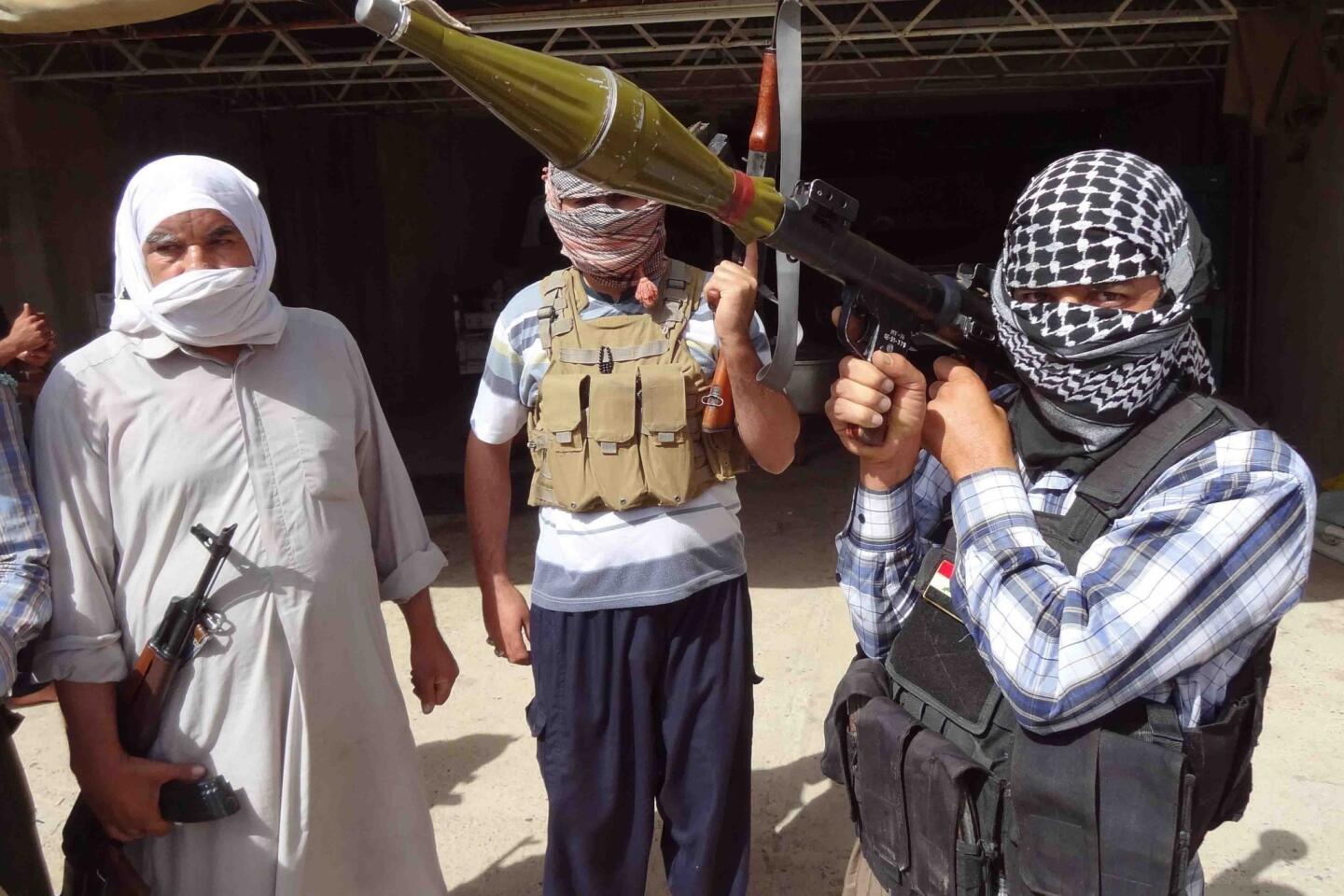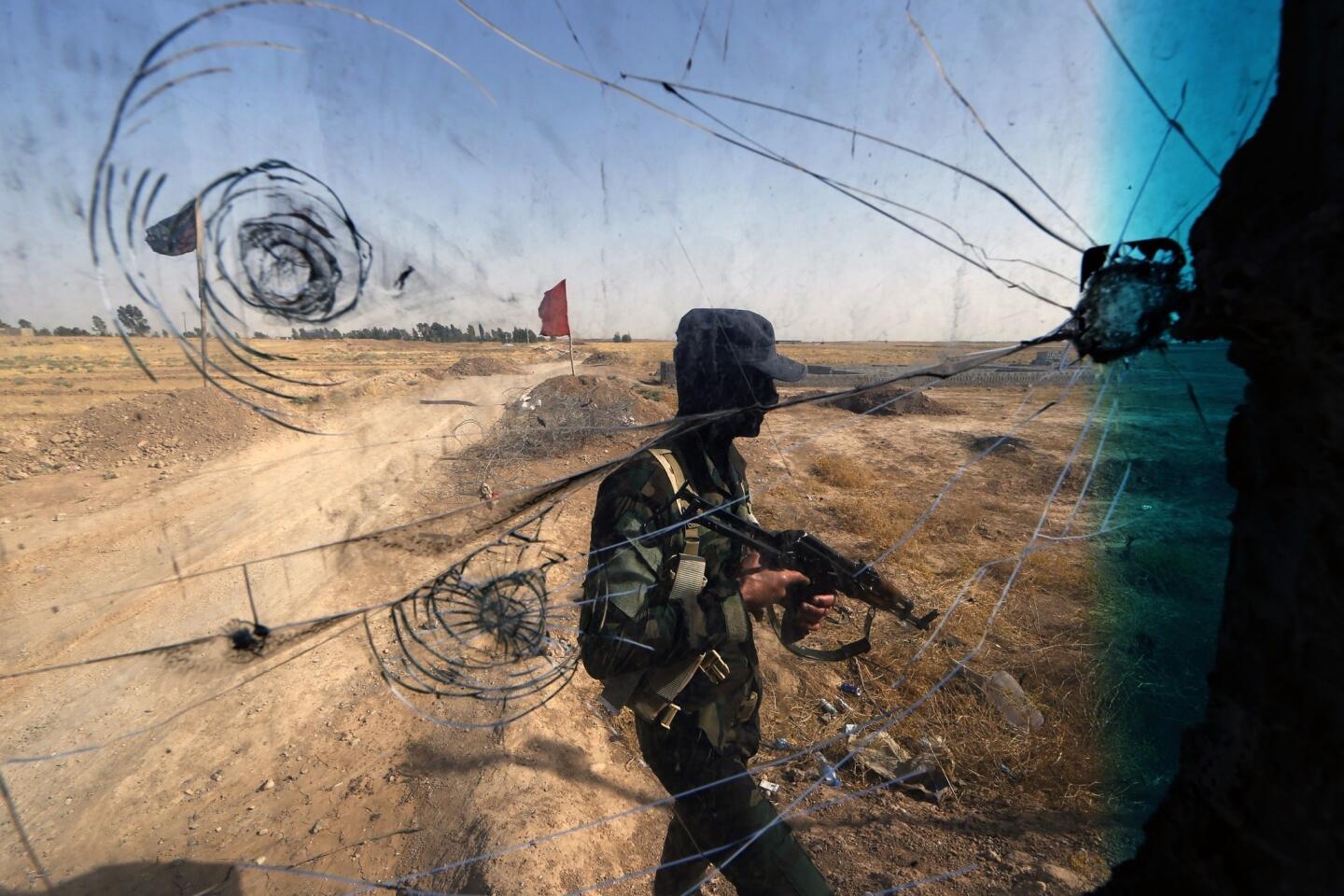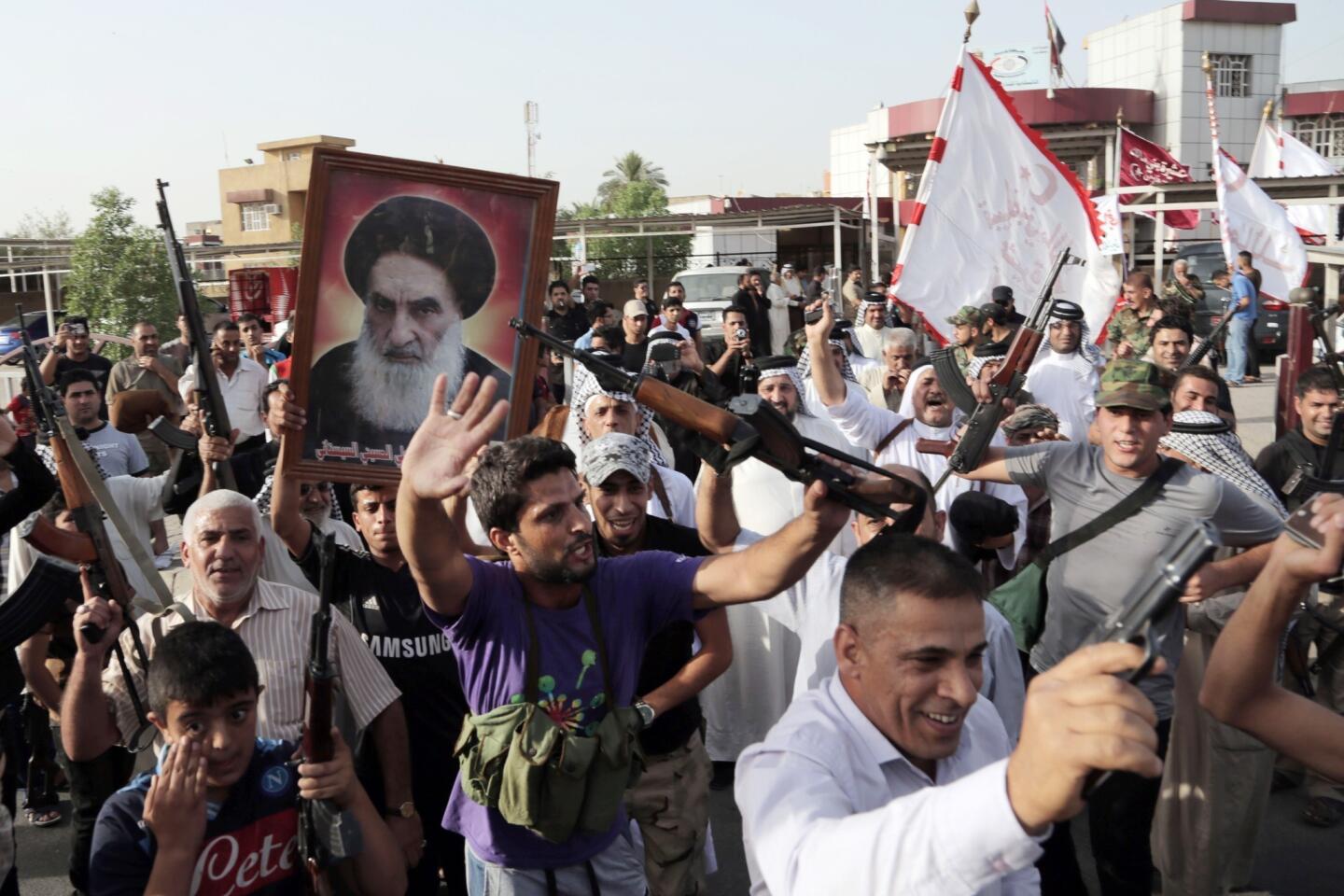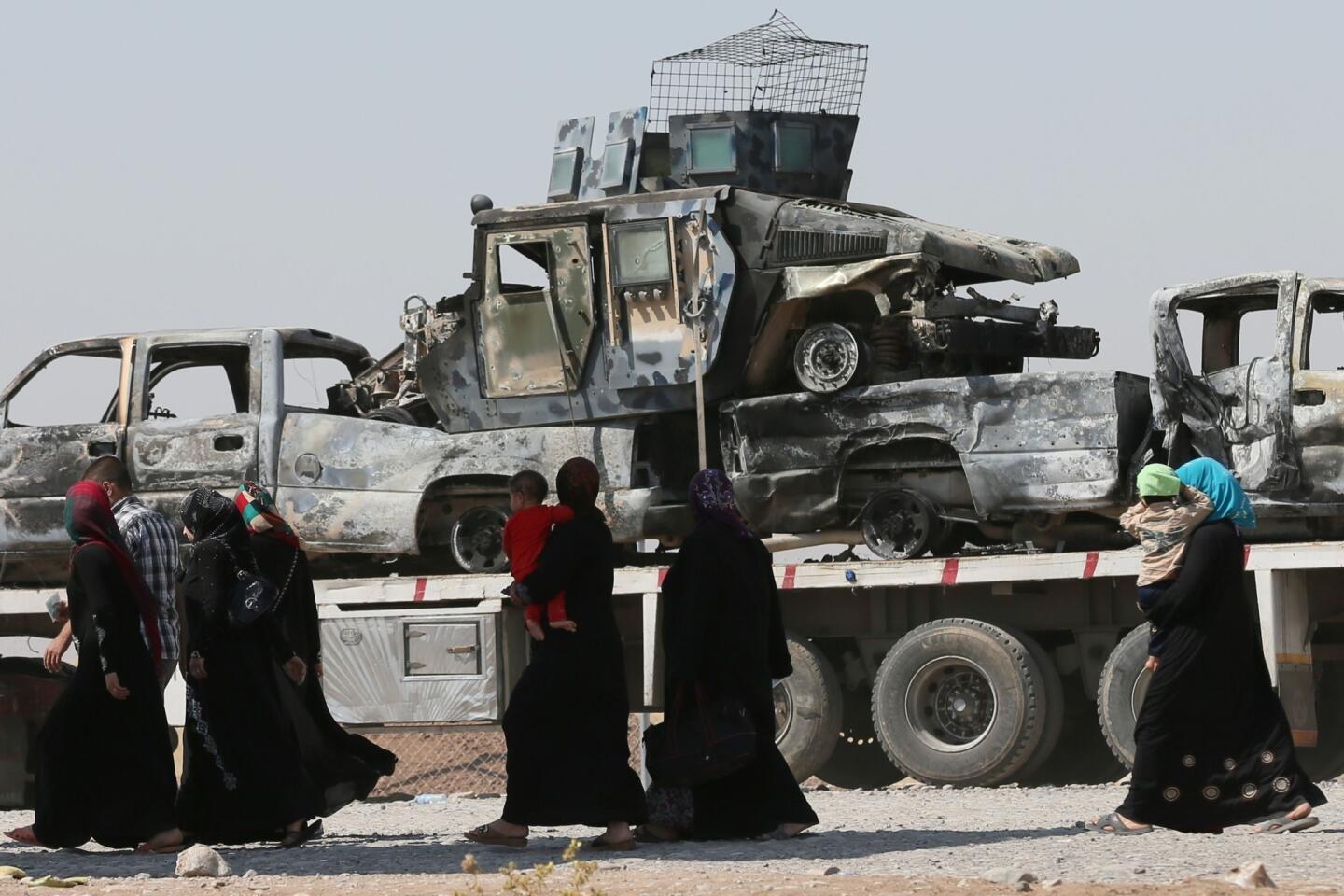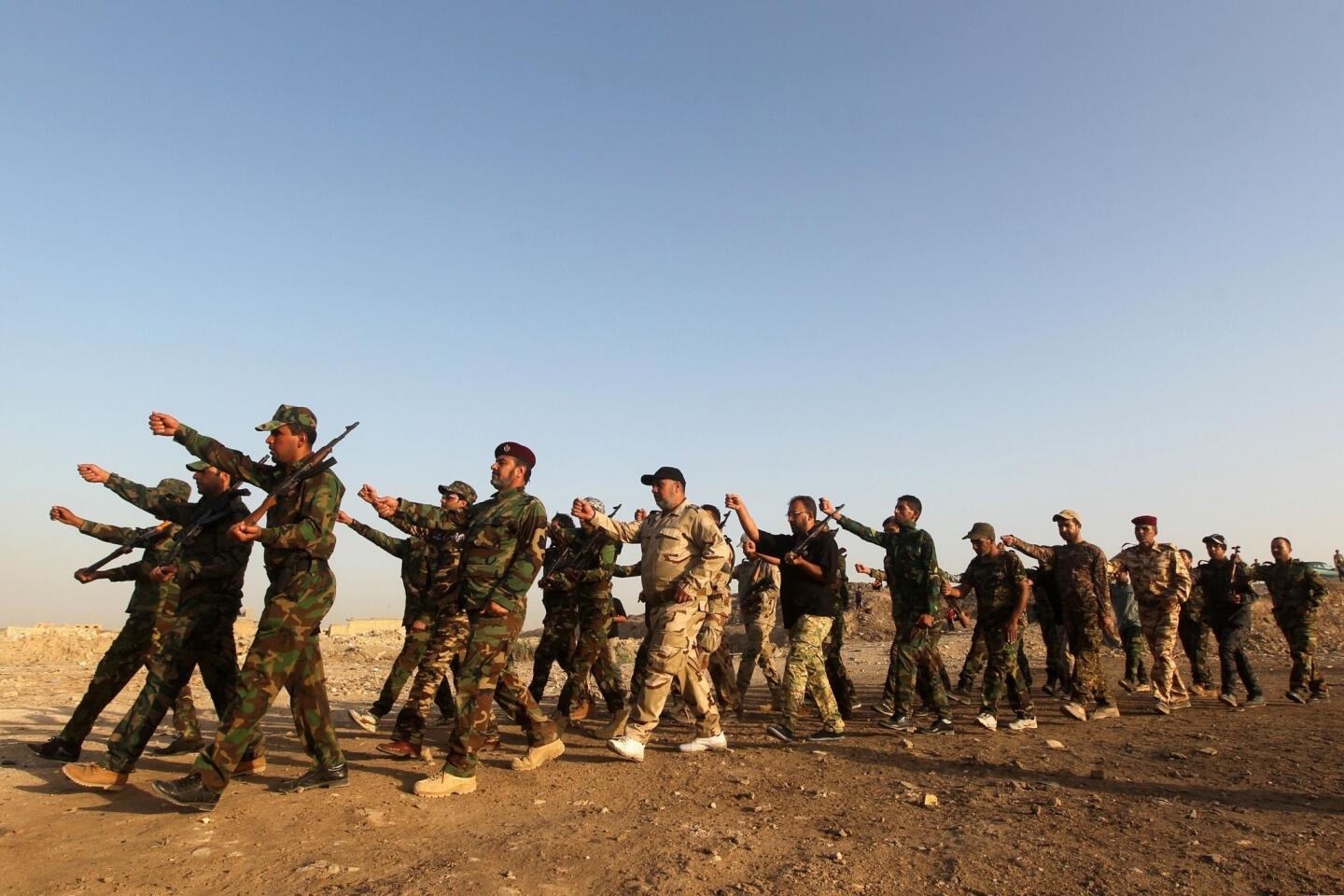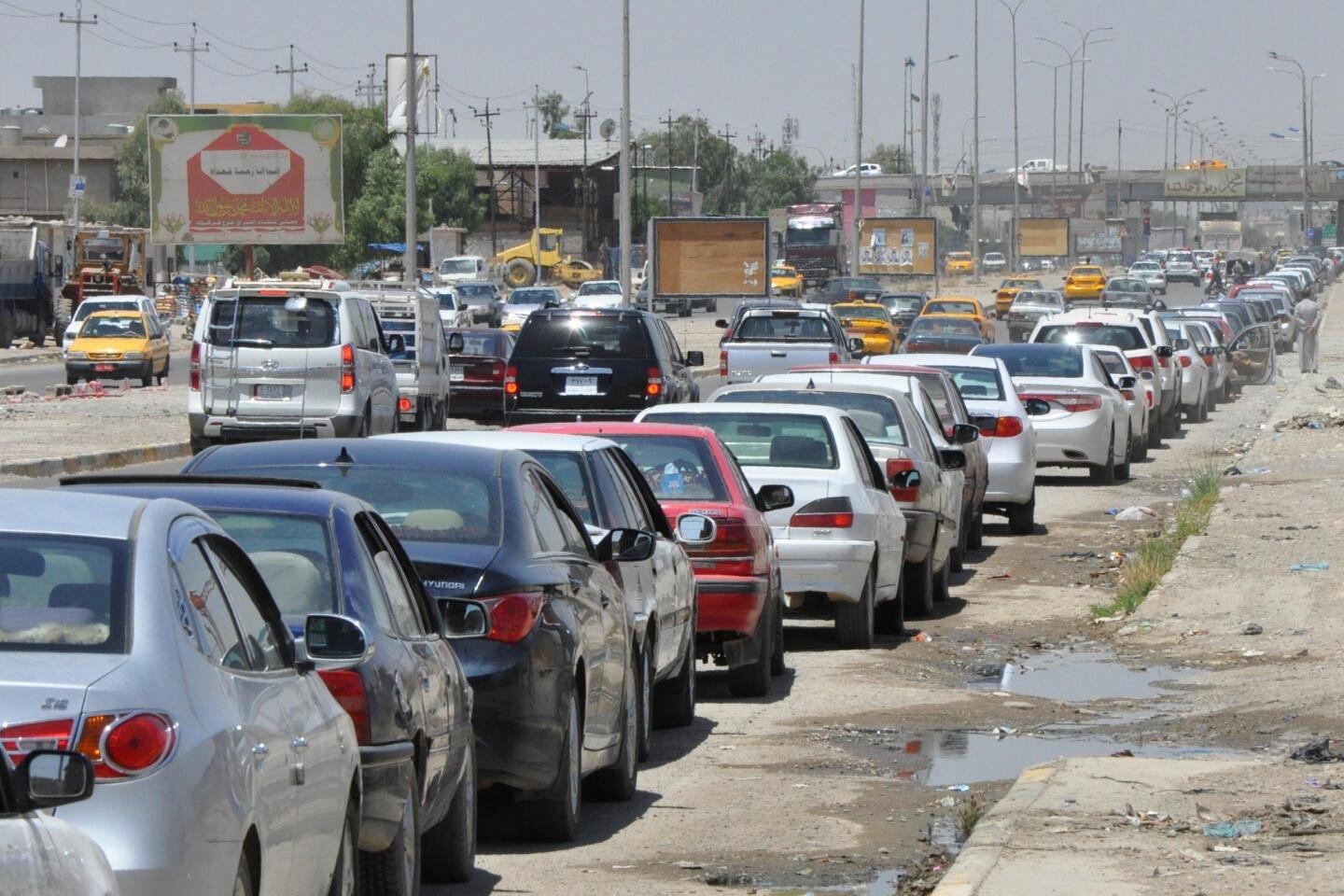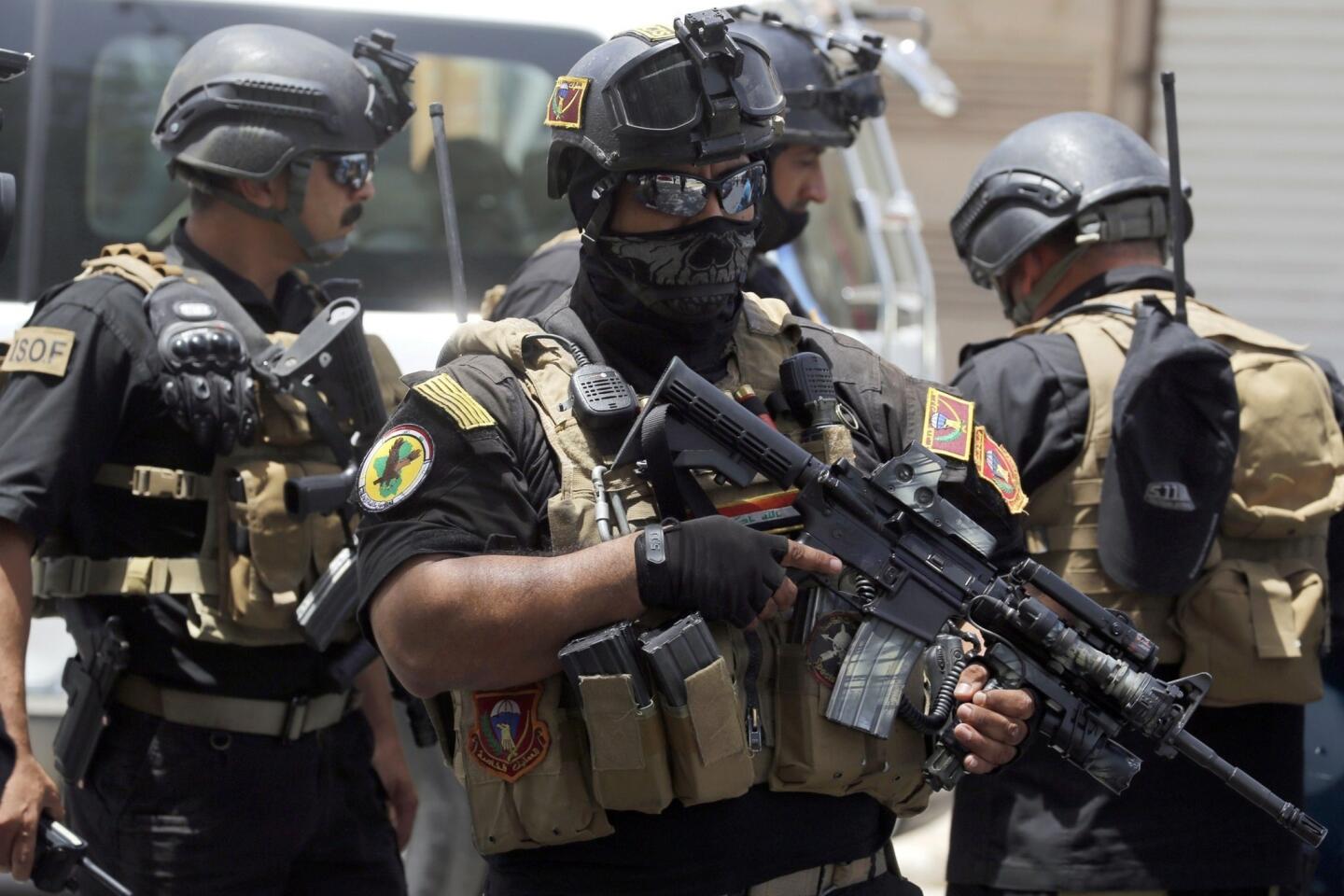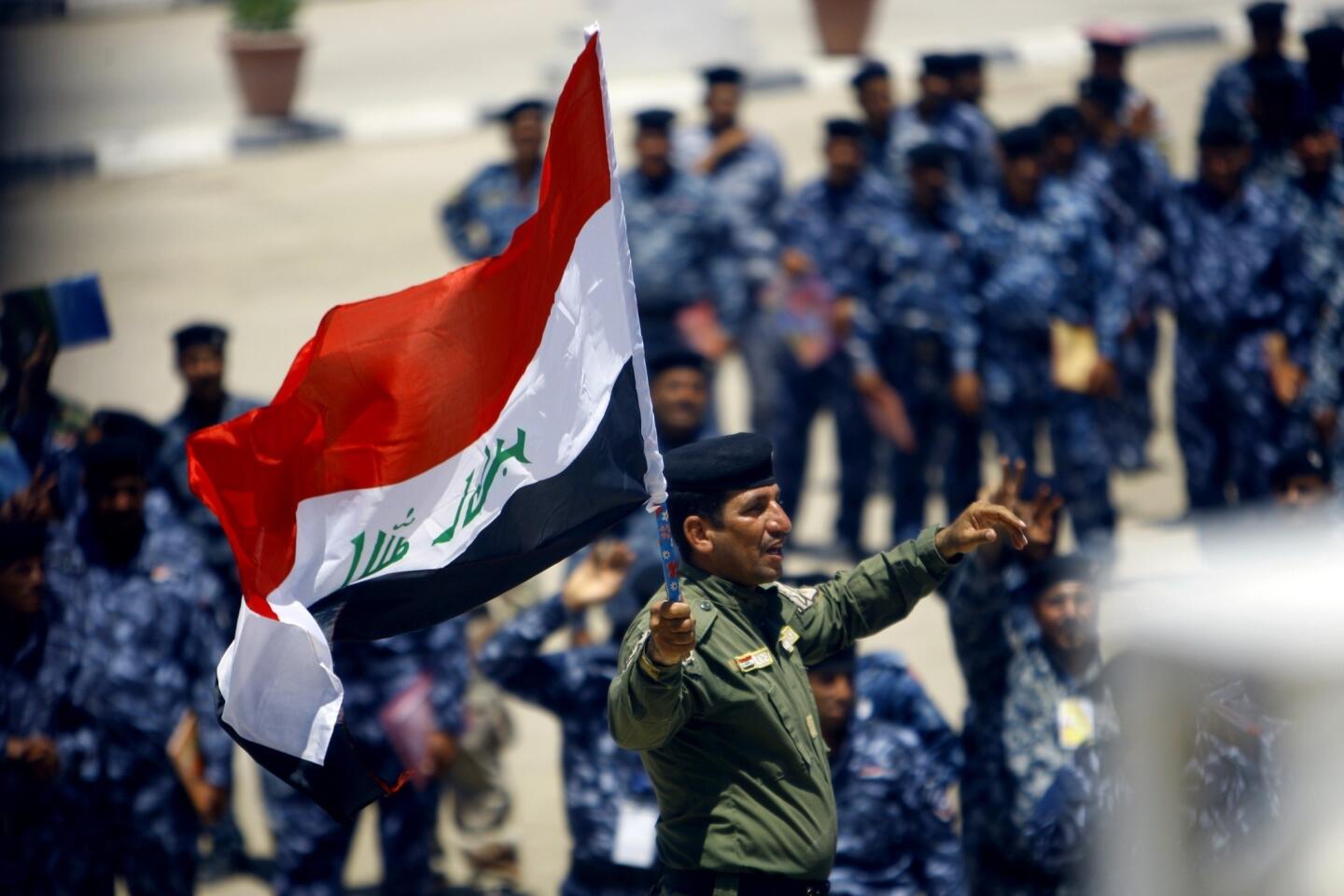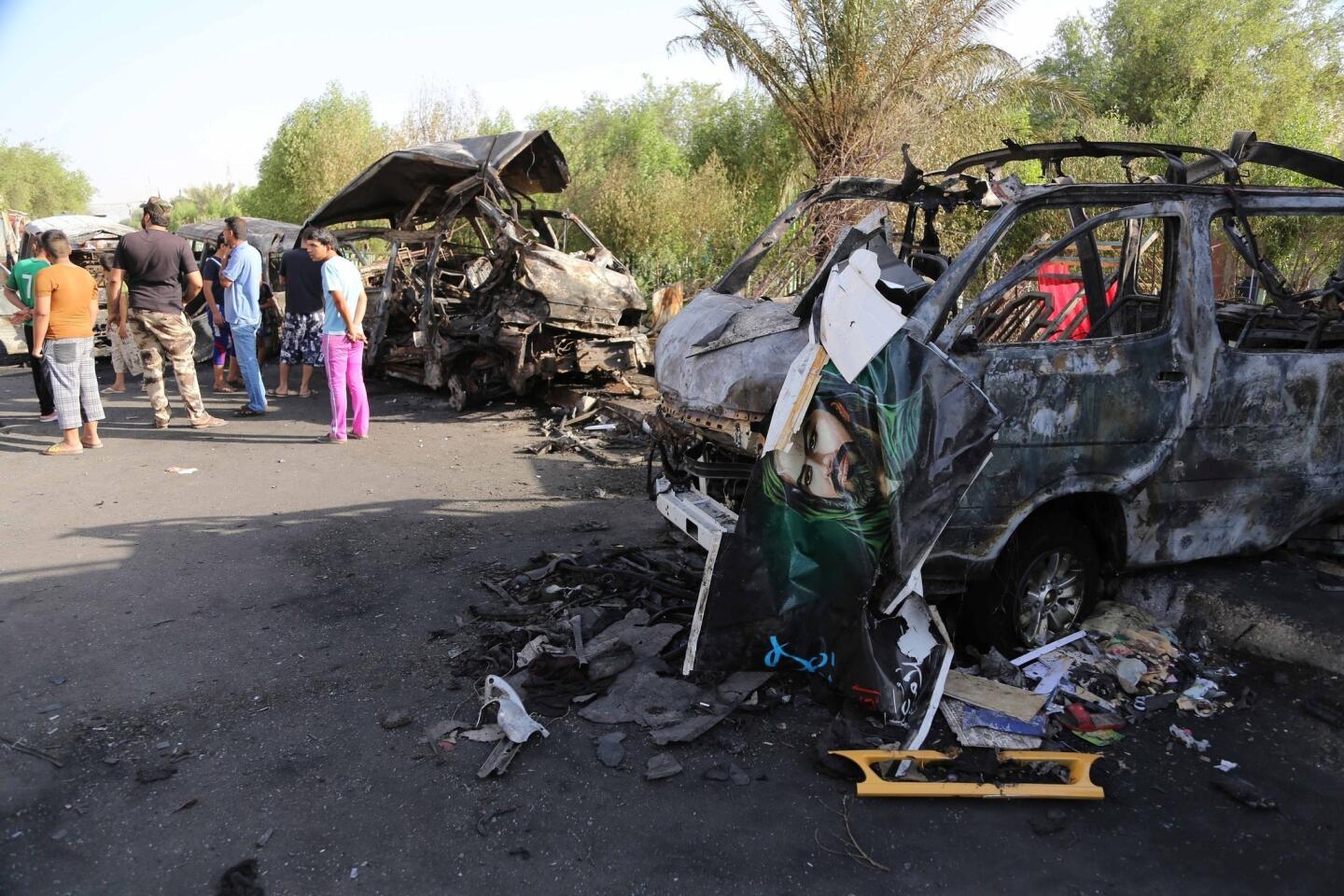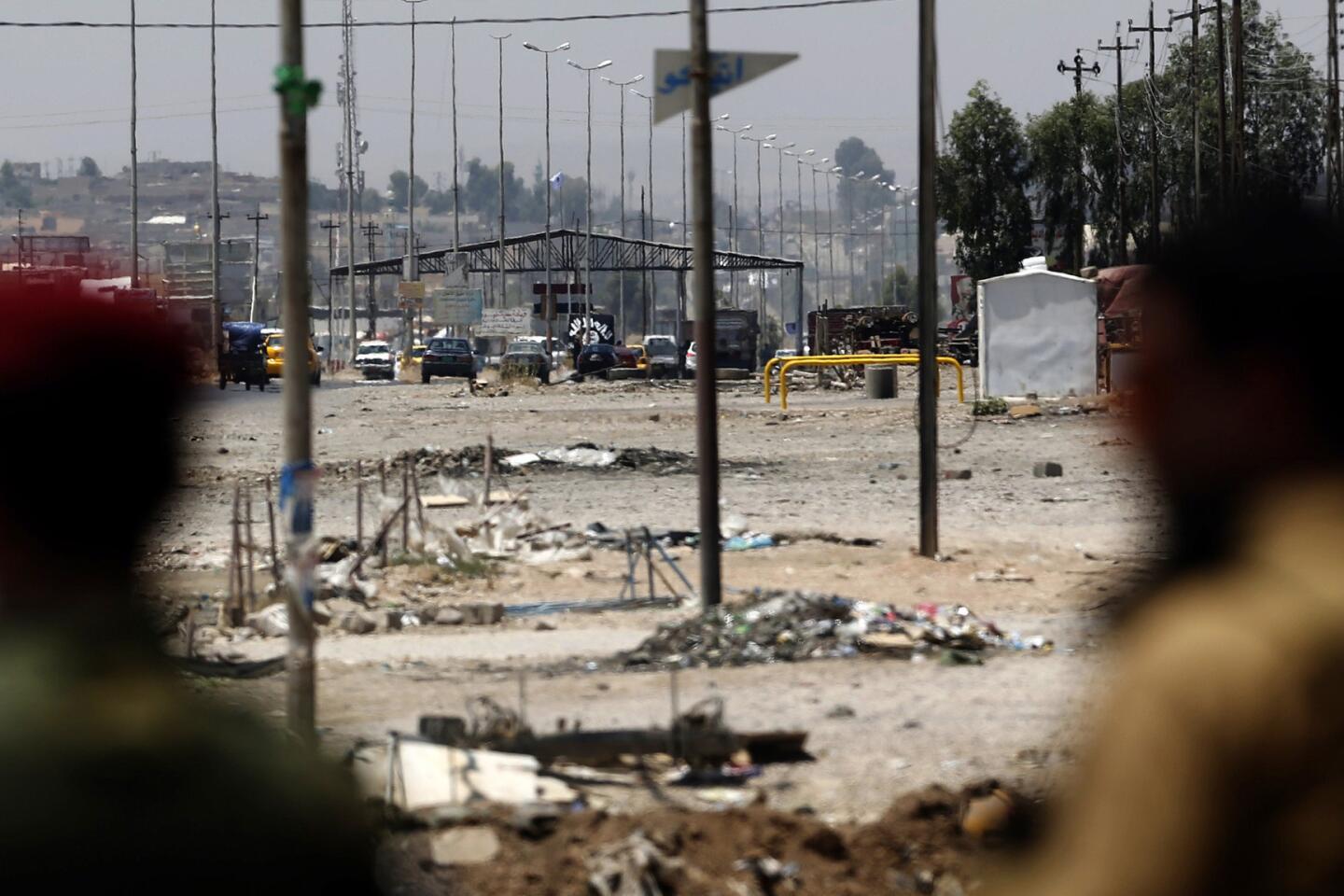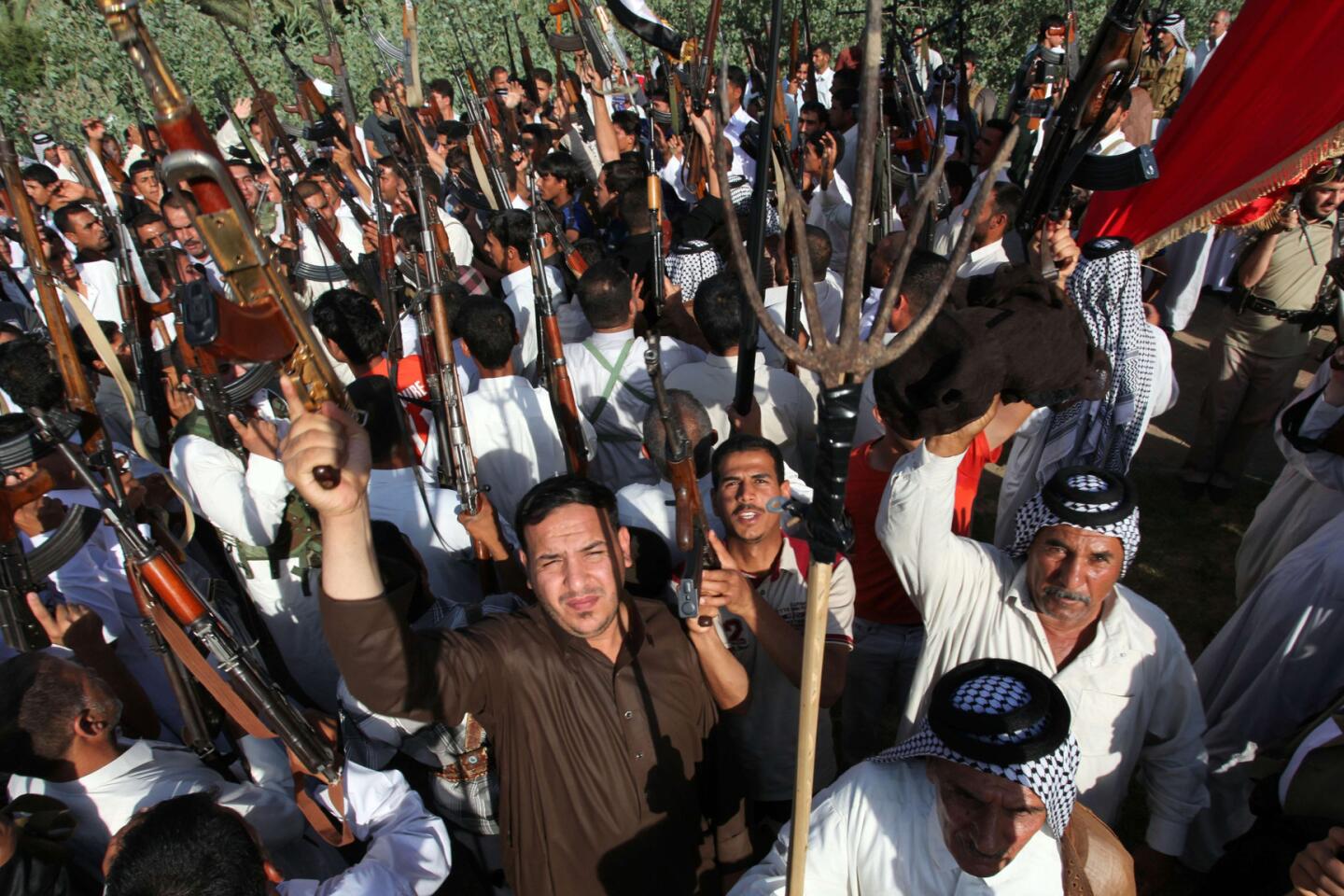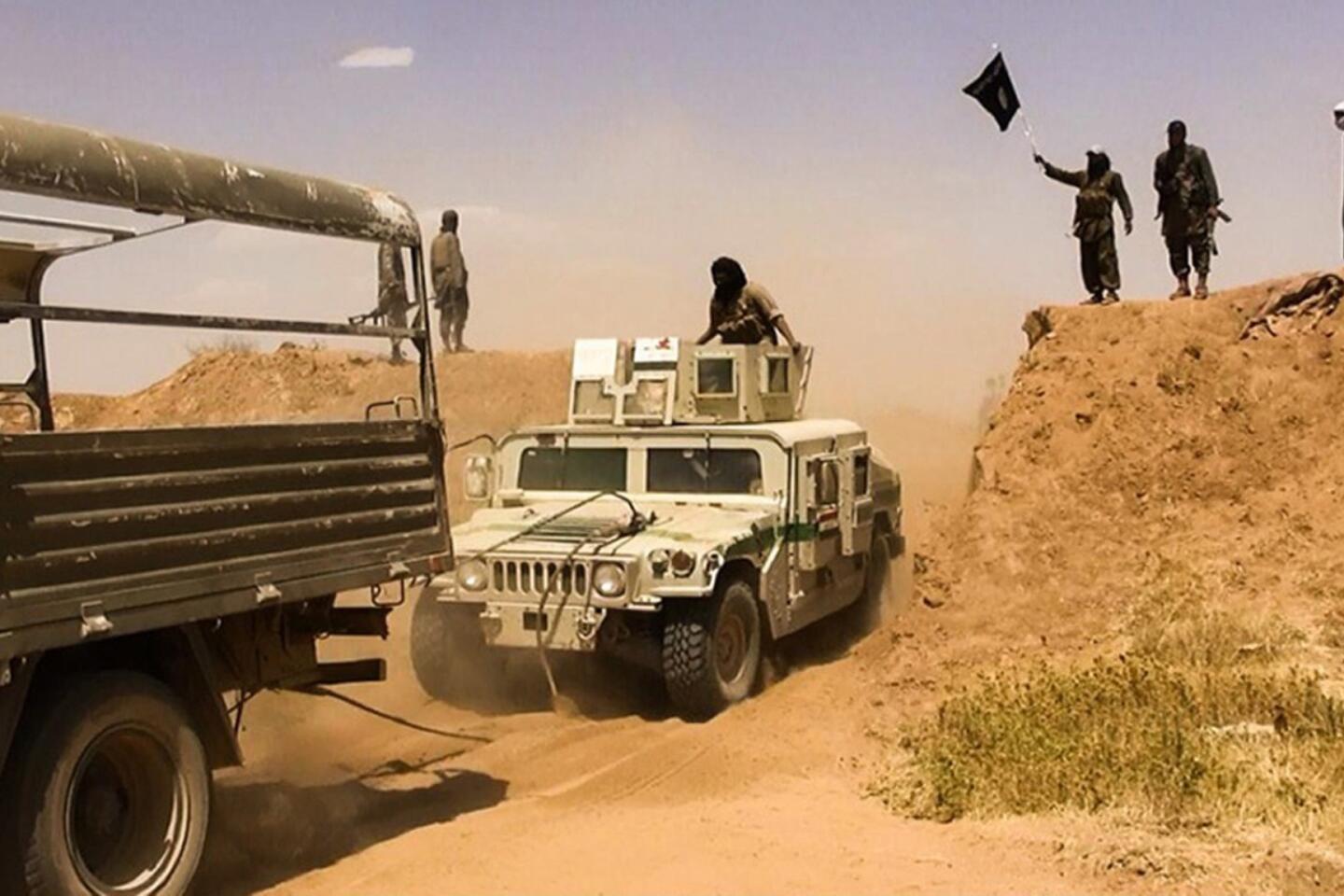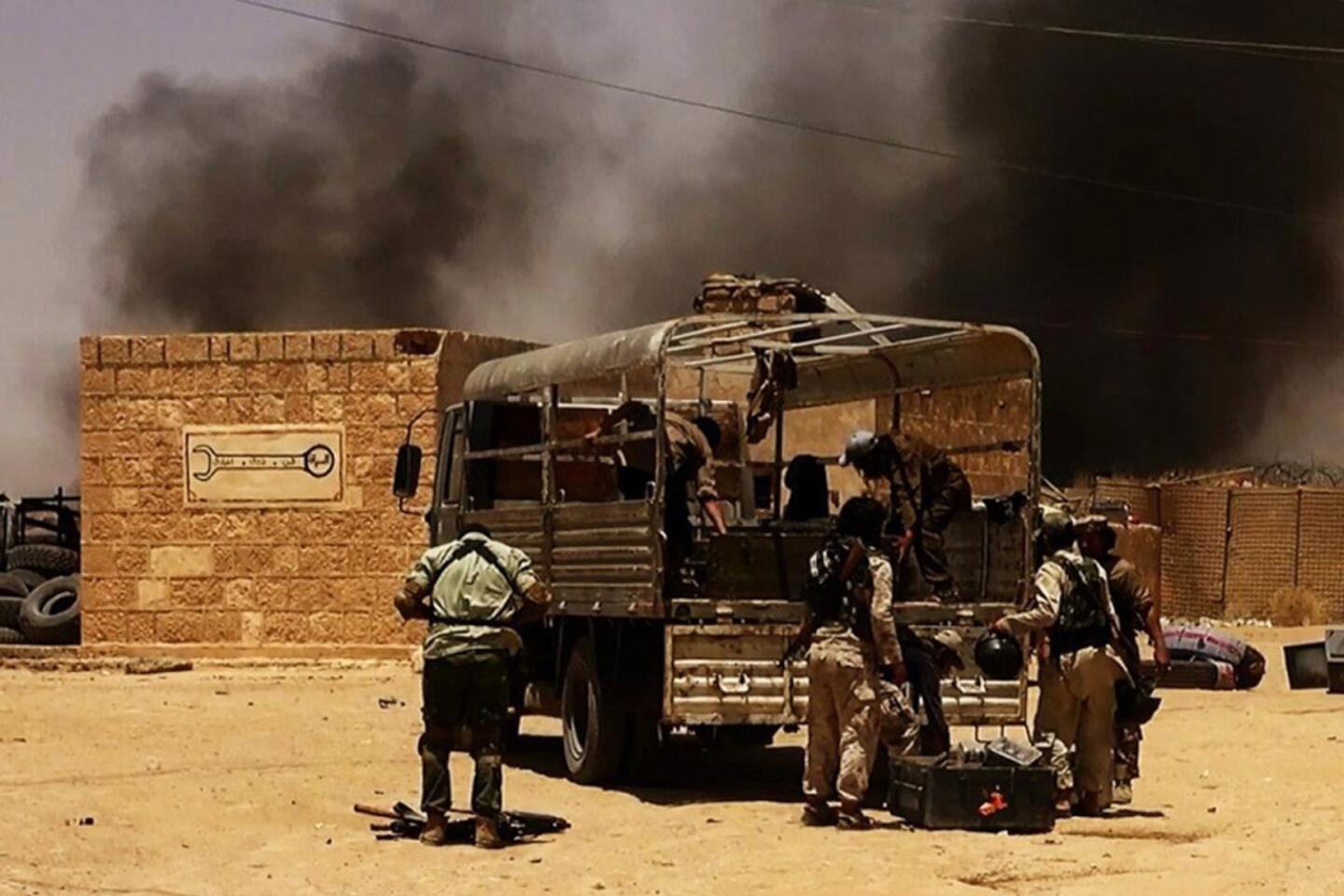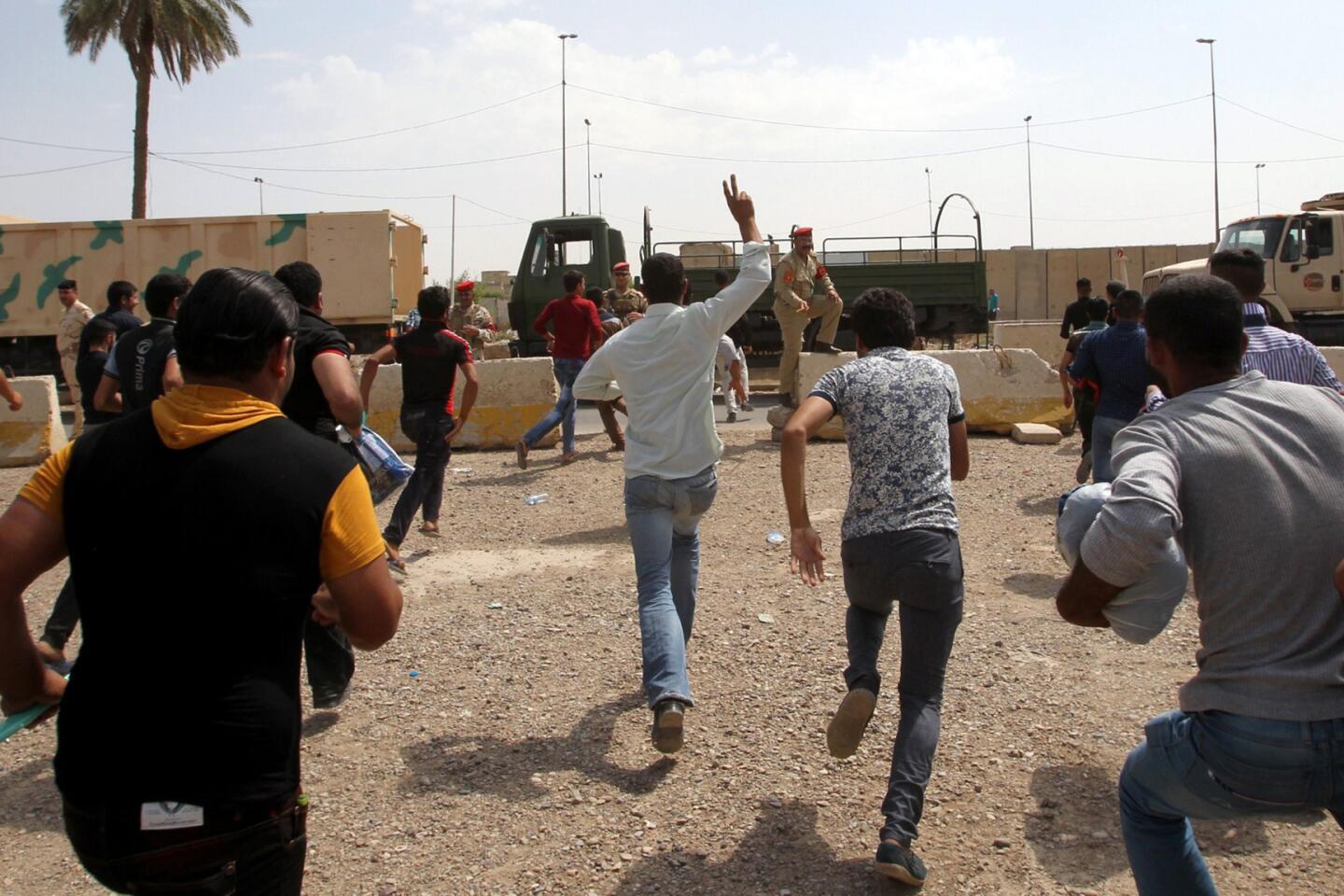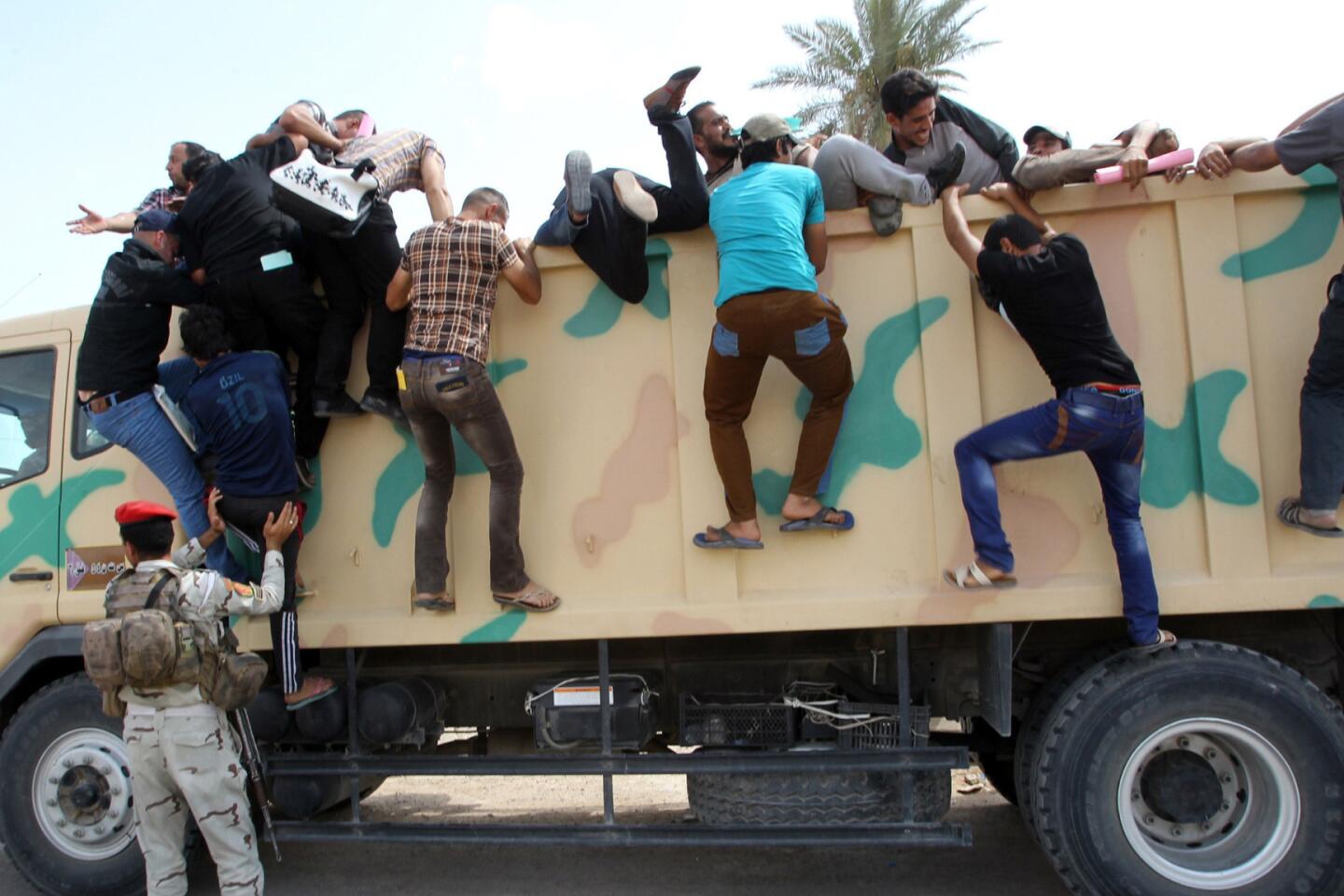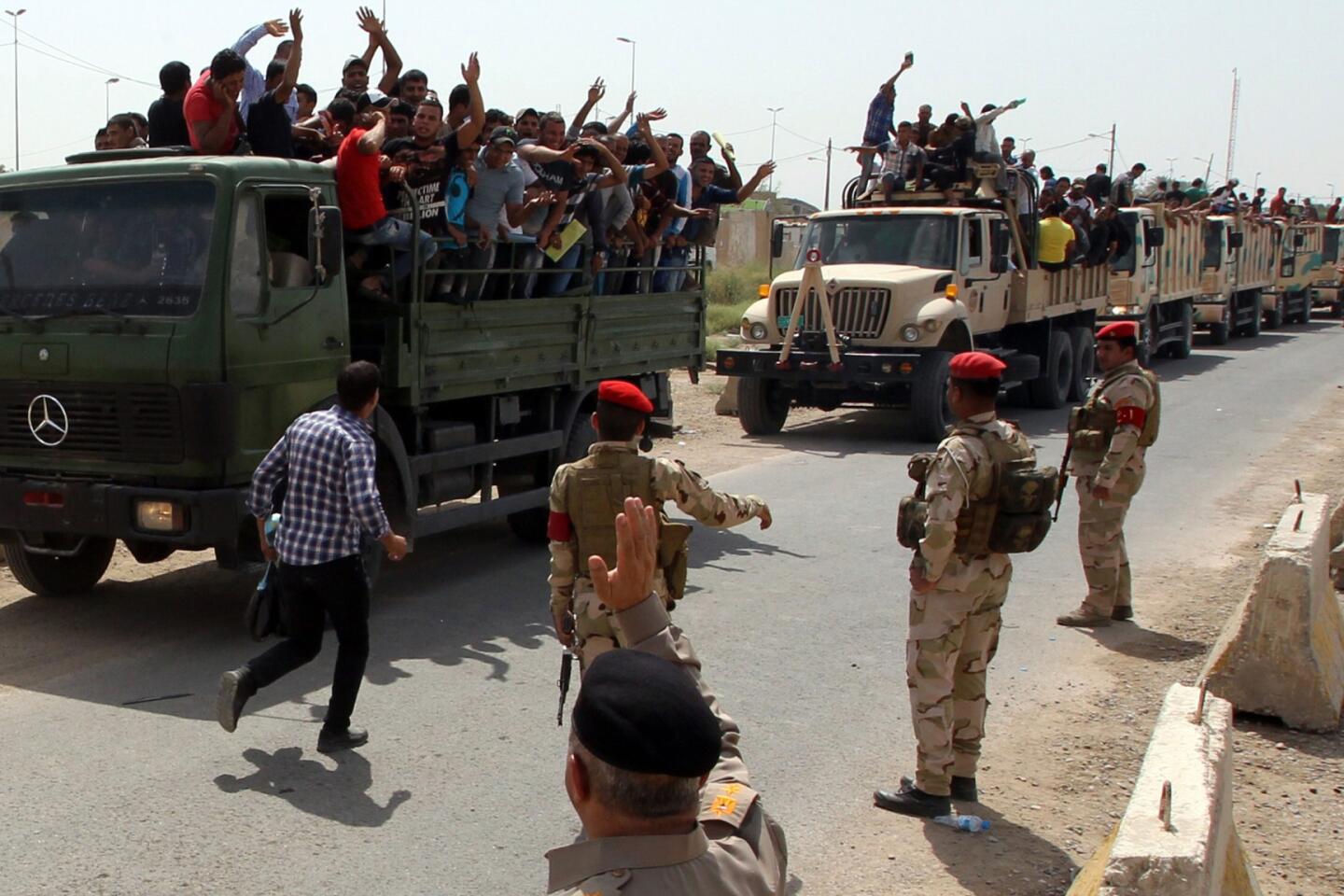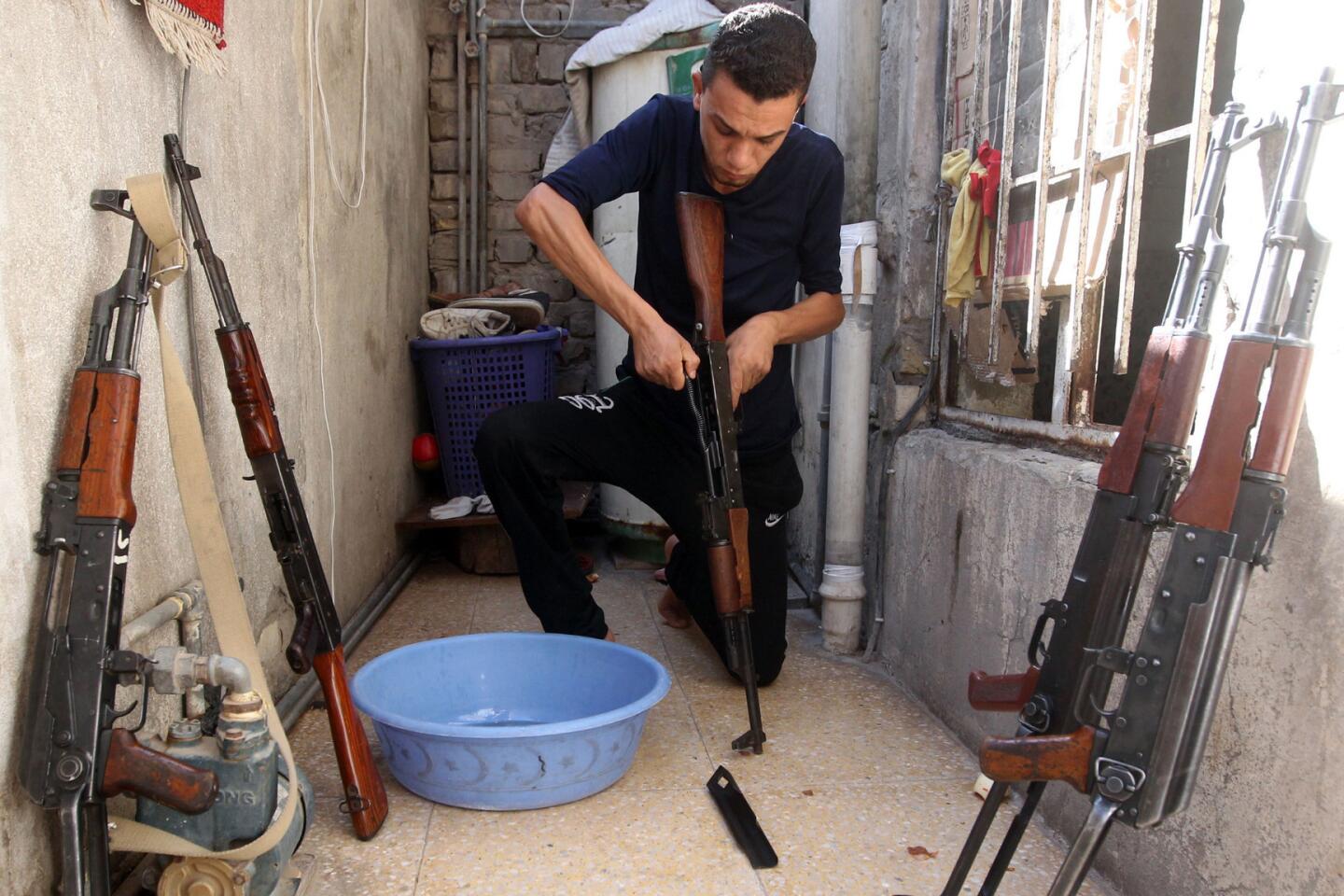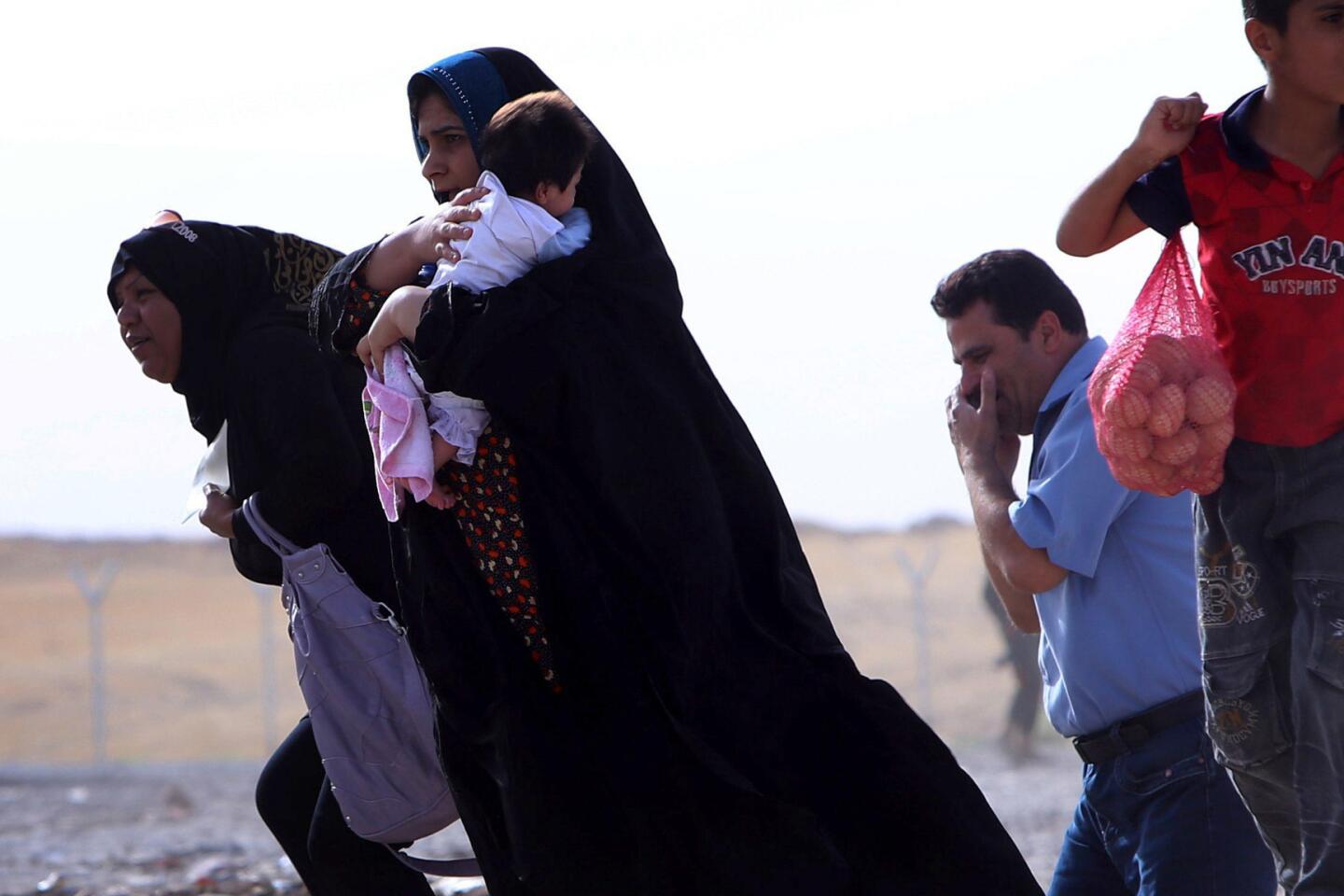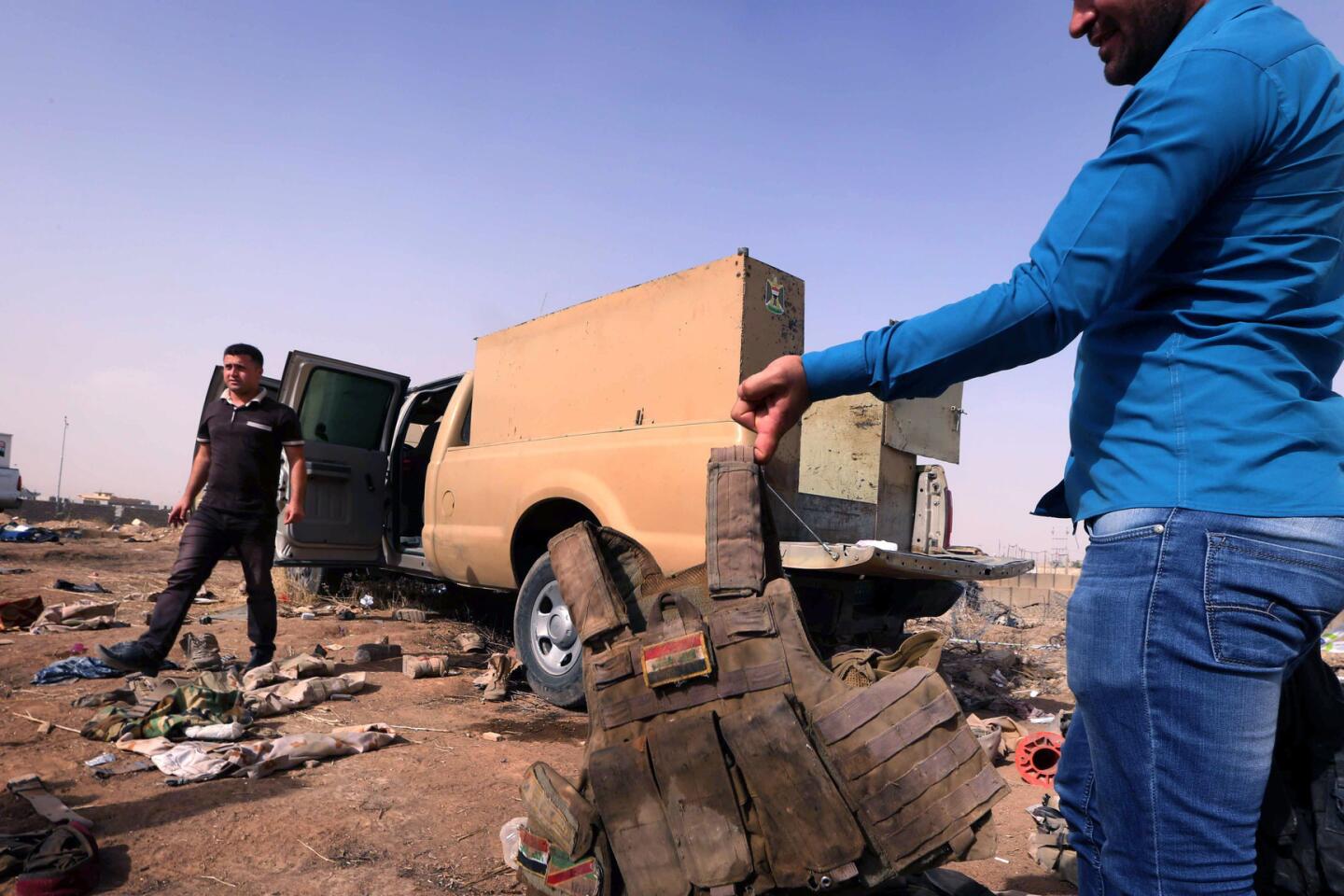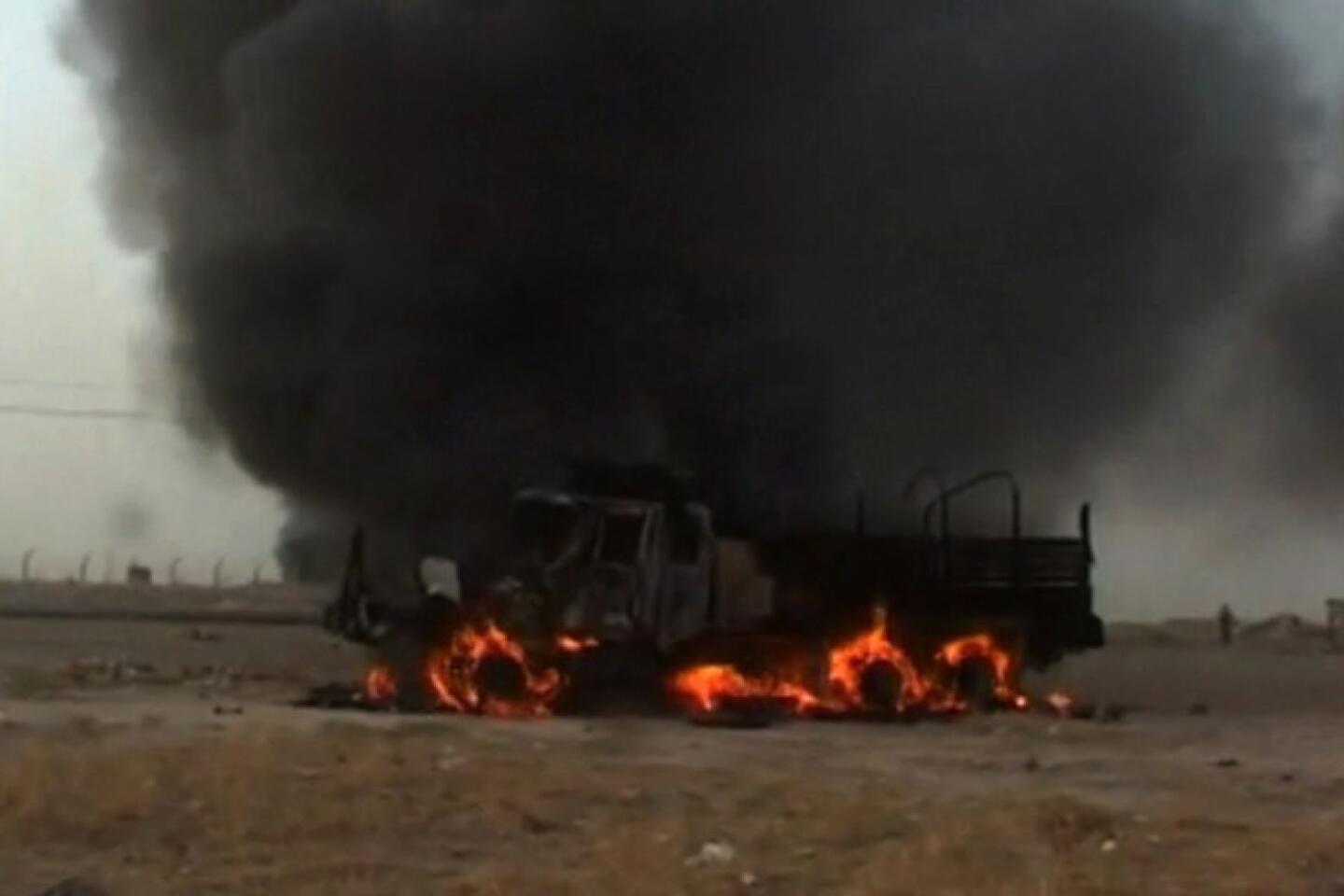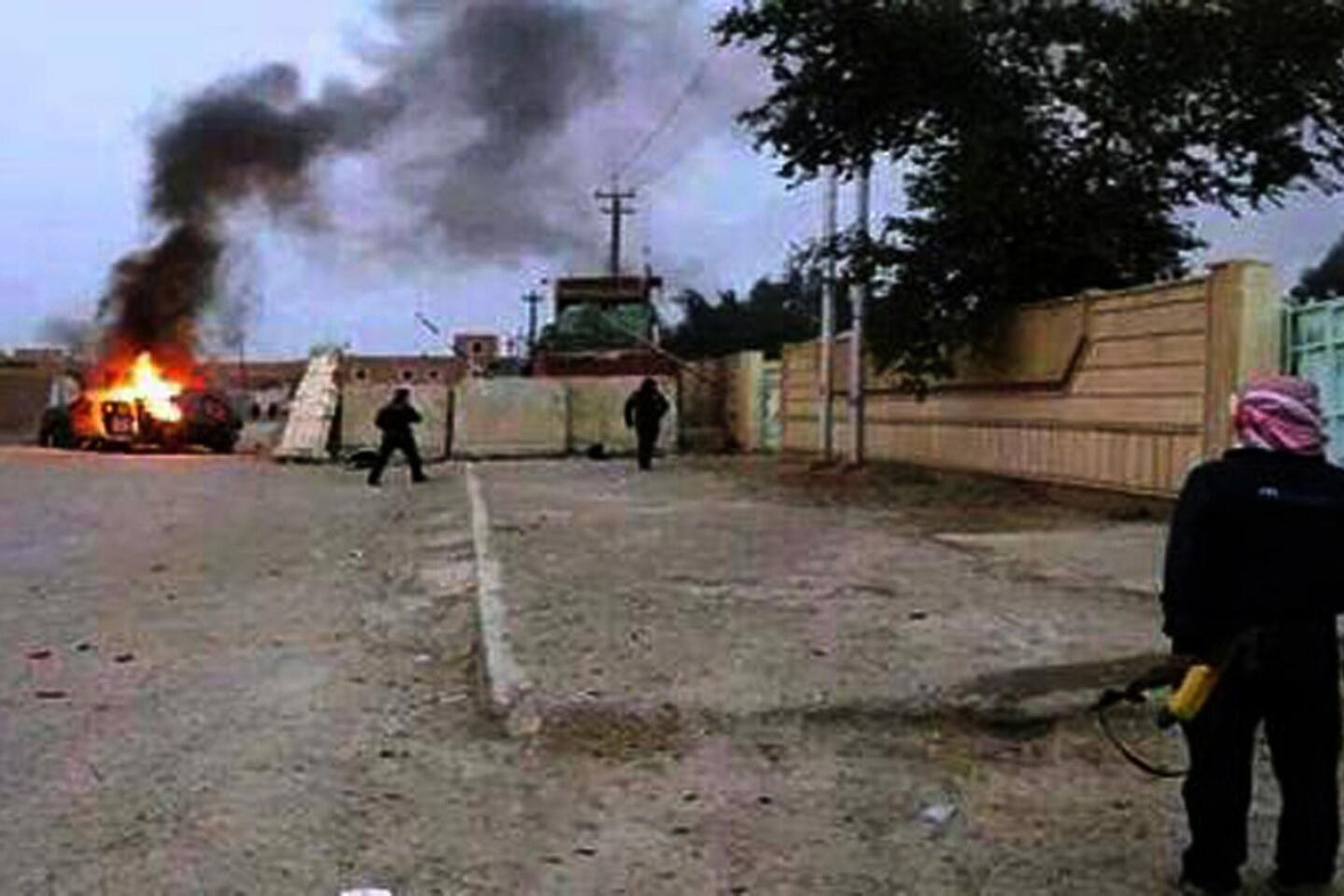Al Qaeda splinter group gains more ground in Iraq
- Share via
Reporting from Amman, Jordan — A resurgent Al Qaeda splinter group consolidated gains in one of Iraq’s largest cities Wednesday and pushed deeper into the heart of the country, threatening to create an extremist “proto-state” in the Middle East, something that U.S. forces fought for eight years to prevent.
The militants rolled past the major northern city of Mosul and into Tikrit, the late Iraqi dictator Saddam Hussein’s hometown, also seizing oil fields in Salahuddin province. In Mosul, gunmen looted the central bank of $420 million and took 48 employees of the Turkish Consulate hostage, including the mission chief.
Gains by the heavily armed fighters of the Islamic State of Iraq and Syria, or ISIS, sent an estimated 500,000 people fleeing east. By late Tuesday, their armored vehicles had rolled into Baiji, halfway to Baghdad, seizing control of the country’s largest oil refinery after granting “safe passage” to Iraqi security forces in exchange for their weapons.
Retreating Iraqi troops left behind American Humvees and helicopters, which were seized by the invaders, according to images the militants posted on social media.
The ISIS offensive, widely described as an alarming threat to the security of the region and its Western allies, appeared to surprise the Iraqi government of Prime Minister Nouri Maliki, whose armed forces in the area suffered what analysts described as a total collapse.
Iraq’s foreign minister, Hoshyar Zebari, called the ISIS advances a “serious, mortal threat” to the country that must be reversed swiftly.
President Obama was briefed on the situation, as several administration officials in the State Department and the White House reached out to the Maliki government, tribal leaders and officials of the autonomous Kurdistan region of northern Iraq, said a senior administration official who would not be named.
White House spokesman Josh Earnest described the security breakdown as “grave.”
Officials were hopeful that the fall of Mosul would galvanize the Iraqi government. The senior administration official described “quite a sense of panic” among Iraqis and a “widespread urgent concern and desire to beat this back.”
U.S. officials said they had already begun ramping up arms deliveries to Maliki’s government, but there was no indication that the administration intended to respond with American troops. Rear Adm. John Kirby, the Pentagon press secretary, said the drive by ISIS “is something for the Iraqi security forces and the Iraqi government to deal with.”
At its heart, the conflict reflects a struggle between Iraq’s Sunni Muslim minority and the Shiite majority, which controls the government. It reflects wider regional tension exemplified by a tug-of-war for influence between Shiite Iran and Sunni Saudi Arabia.
Iran’s Supreme National Security Council also sounded the alarm over ISIS’s growing clout and called for “attention and action from governments and the international community.”
For now, momentum appears to be on the side of the militants aiming to impose a more severe form of Islamic law across the Sunni communities they control on both sides of the Iraqi-Syrian border. Iraqi Sunnis, fed up with a government that excludes them from power and a share of Iraq’s oil wealth, seemed little perturbed by the offensive, which already had captured significant towns in Anbar province and the former insurgent strongholds of Fallouja and Ramadi.
Gov. Atheel Nujaifi of Nineveh province, which includes Mosul, insisted that the city is “capable of getting back on its feet and getting rid of all the outsiders.” But he was among the half a million people to flee as the militants moved in; he made his comment via his Facebook page from the safety of Irbil, capital of the Kurdistan region.
Maliki has called on the parliament to declare a state of emergency and for residents to join local militias to “combat terrorism.” At a news conference Wednesday in Baghdad, he appeared perturbed and said that the insurgents would be driven back by the army and police.
The army is widely viewed by Sunnis as a force involved in sectarian attacks at the behest of Maliki’s hard-line Shiite government.
ISIS conquests have come relatively easily, Middle East experts say, because Sunnis view the Shiite-dominated government as hostile to their interests.
In an audio message released on an ISIS Twitter account, spokesman Abu Muhammad Adnani Shami threatened Maliki, whom he called an “idiot,” and said that recent advances were just the beginning.
“Truly, we have a settling of scores.... It is a long and hefty account,” he said.
Iraq’s new vulnerability to the militants is also an indicator of what might happen in Afghanistan after U.S. forces leave this year, said Sarah Chayes, a senior associate at the Carnegie Endowment for International Peace.
In Iraq and Afghanistan, “the United States neglected efforts to ensure that the government was seen as legitimate by the bulk of the population, that people felt they had effective input in the way they were being governed,” said Chayes, a former special assistant to the Joint Chiefs of Staff who has spent most of the last decade in Afghanistan. “The insurgency is fueling itself on people’s indignation.”
The capture of Mosul represents a major victory for the insurgents, said Paul Salem, a veteran analyst at the Middle East Institute.
“This is an order-of-magnitude conquest by ISIS of this very big and very important city,” Salem said of the militants’ takeover of the city of about 2 million. “With this victory you really have to consider ISIS a proto-state as it now includes major cities, major access to resources, with momentum on its side that will only attract more fighters.”
The U.S. mission in Iraq, which ended in 2011, failed to impress upon the Maliki government the importance of power-sharing, Salem said. The Kurds’ geographic concentration has allowed them autonomy, but the scattered Sunnis have been denied their place in the national economy and institutions.
“The hearts and minds battle is lost. But if politics returns to inclusiveness, with Sunni groups on the inside, that will have an impact on the public,” Salem said. “Iraq is a very, very wealthy country and can offer a lot more to these citizens if they deal them into the pie.”
The expanding muscle of the Islamic extremists should inspire the Obama administration to put the Middle East back on its foreign policy priority list and step in with military aid and guidance, said Patrick Johnston, a counter-terrorism analyst with Rand Corp.
U.S. officials in Washington said they have been increasing deliveries to the Iraqi government of military equipment, from F-16 fighters and Hellfire missiles to small arms and ammunition. But they concede that the materiel is likely to have little influence on the immediate fight; the first delivery of an F-16 was made only this week.
Few who monitor the insurgency expect the Maliki government to prevail on its own.
“If the insurgents are able to take control of the Baiji oil refinery, they will be able to raise more funds and that should help them become stronger in the short term,” Johnston said. “ISIS is going to control a large chunk of the country for quite some time.”
Special correspondent Bulos reported from Amman and Times staff writer Williams from Los Angeles. Paul Richter and Kathleen Hennessey in Washington and Raja Abdulrahim in Los Angeles contributed to this report.
More to Read
Sign up for Essential California
The most important California stories and recommendations in your inbox every morning.
You may occasionally receive promotional content from the Los Angeles Times.
